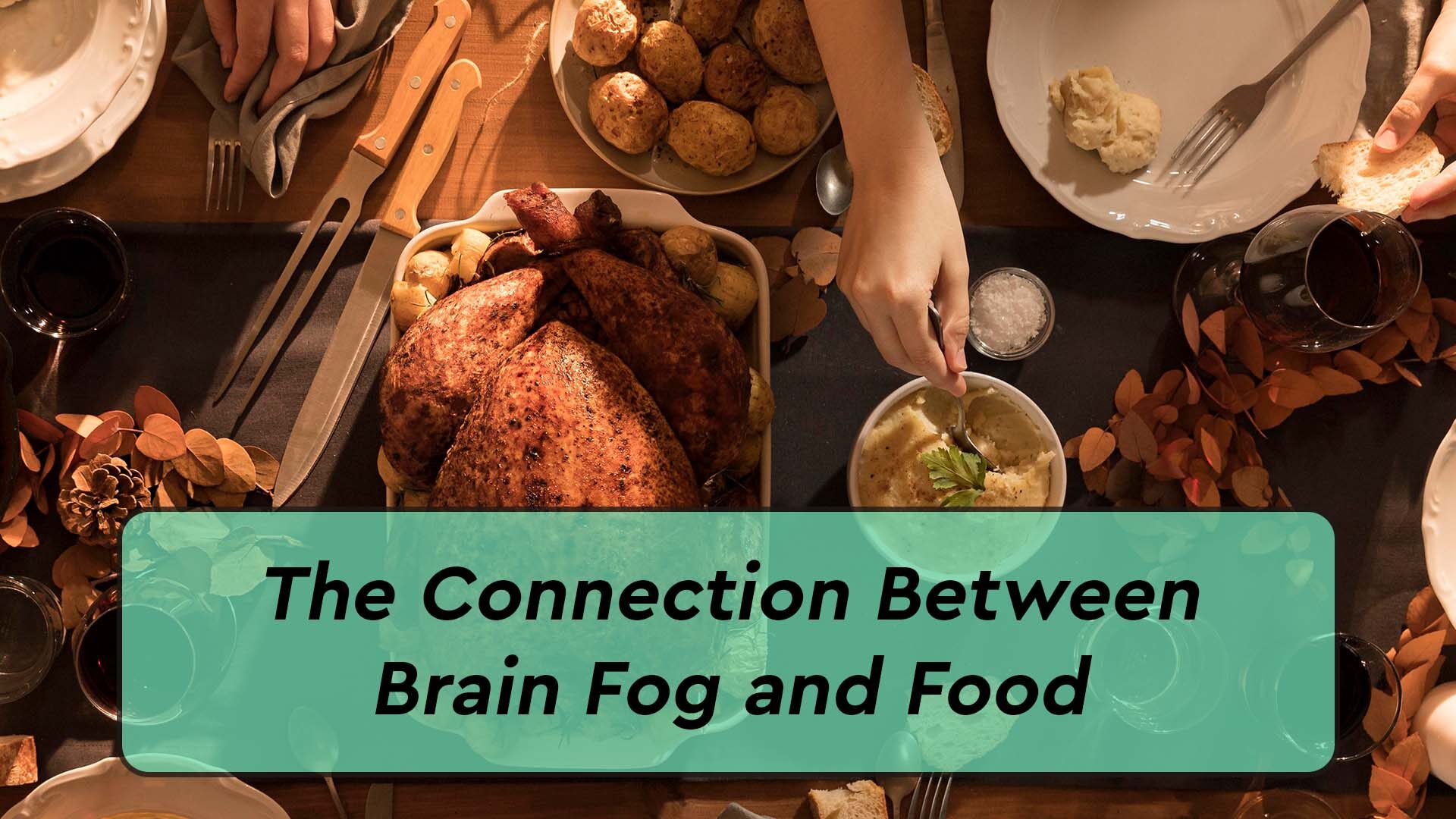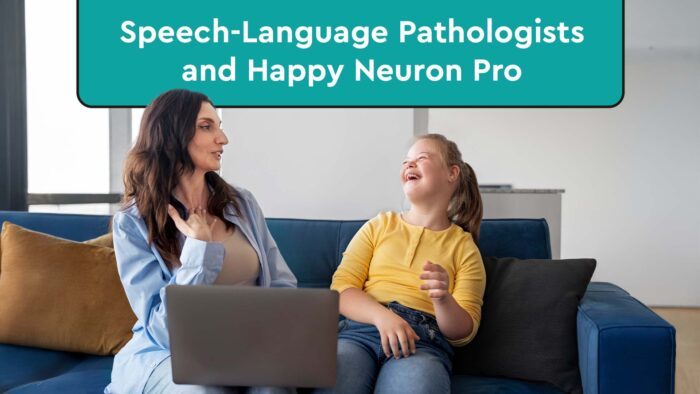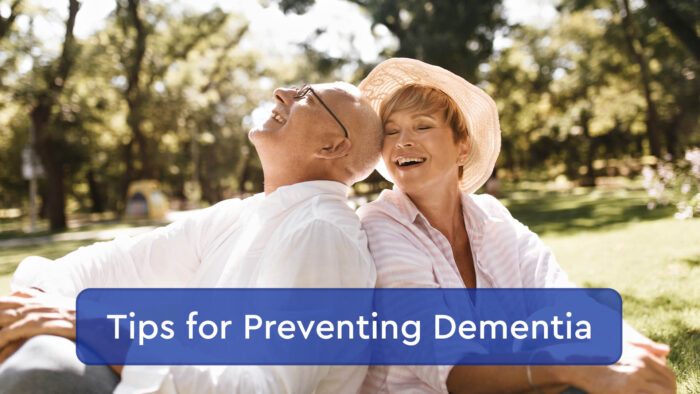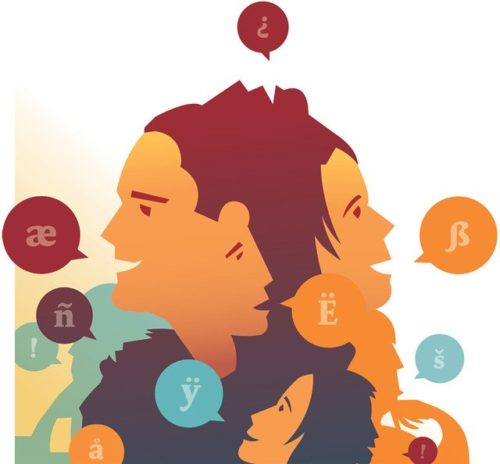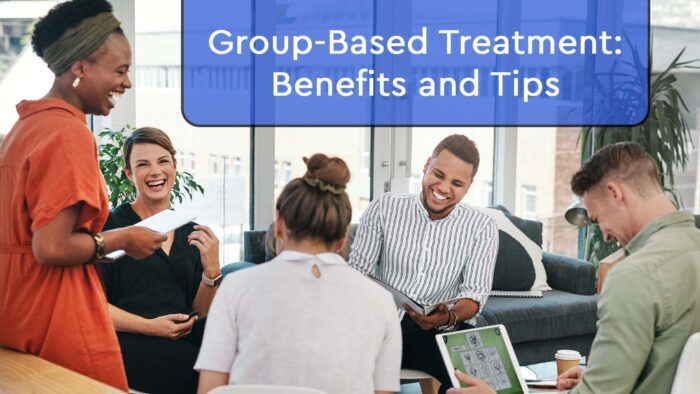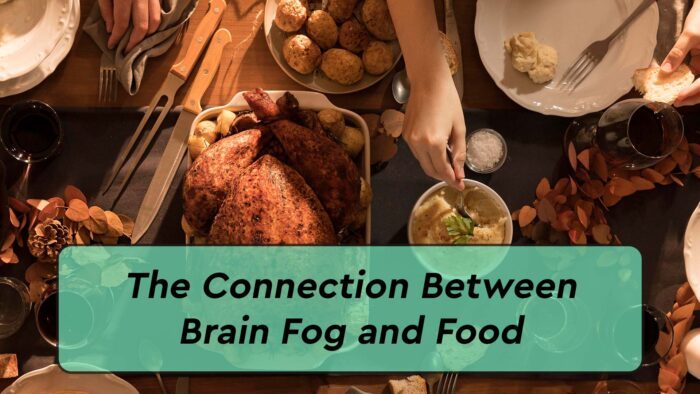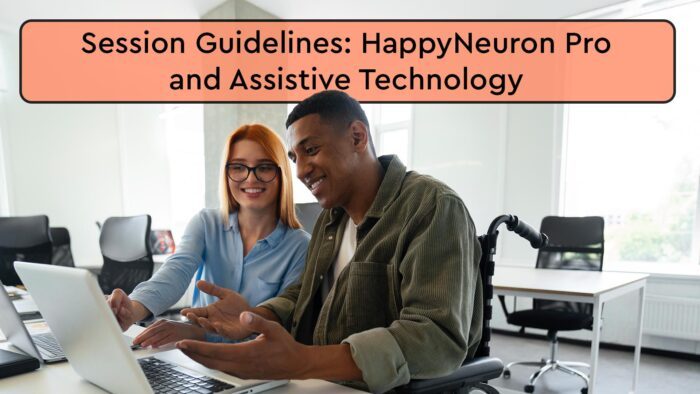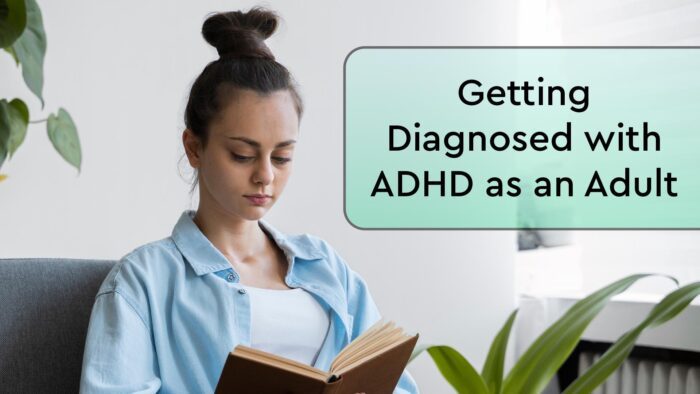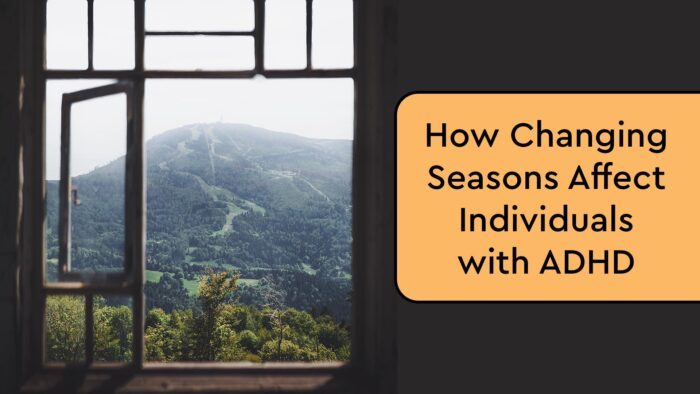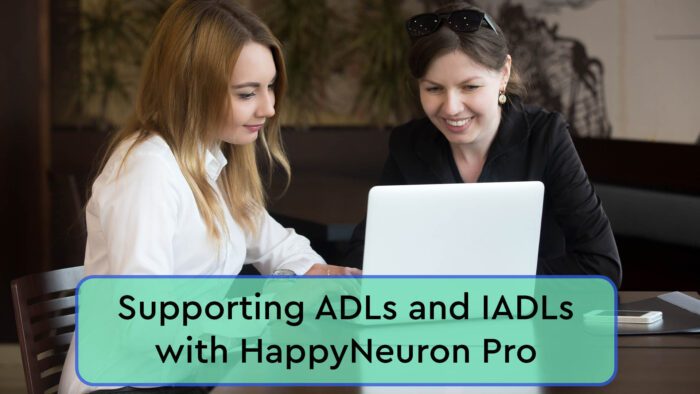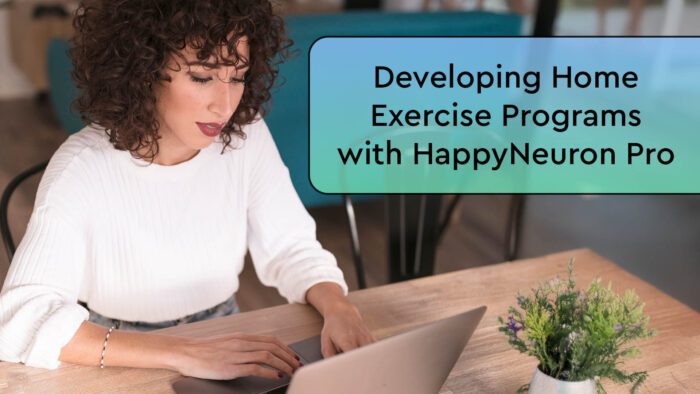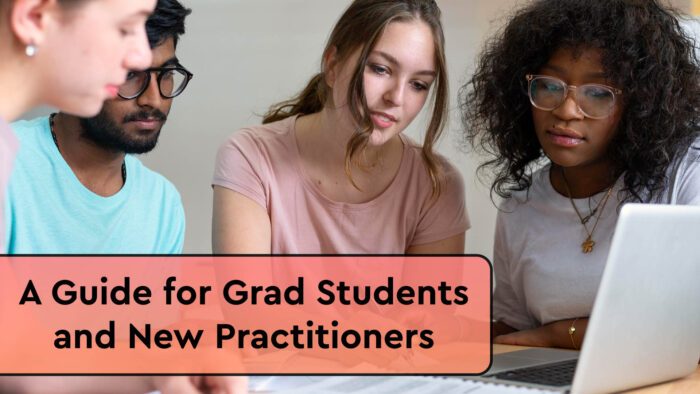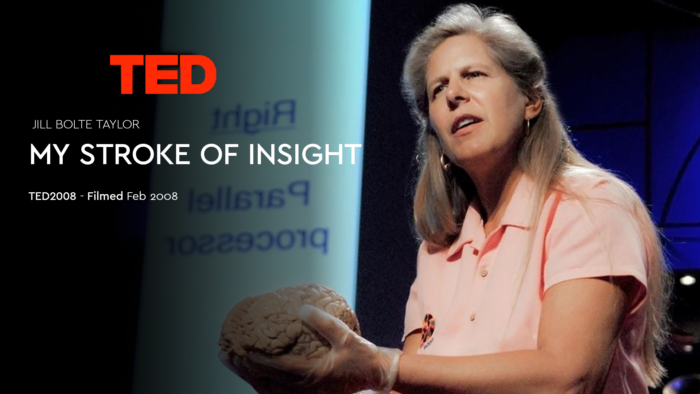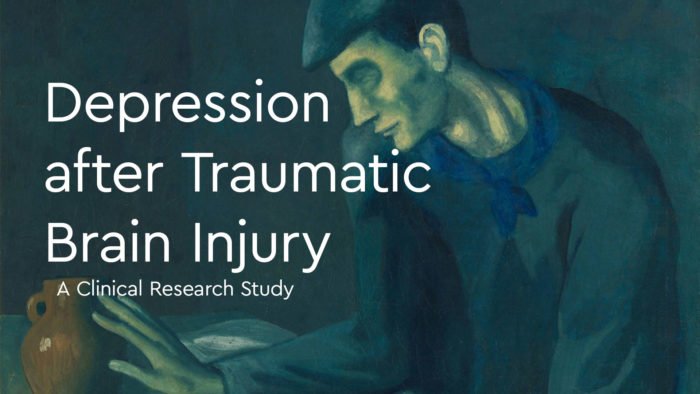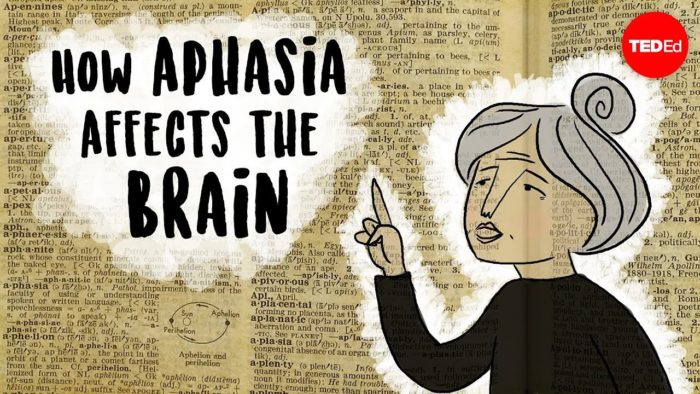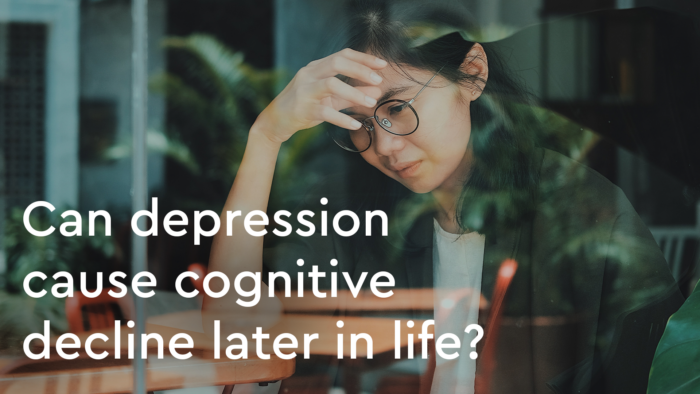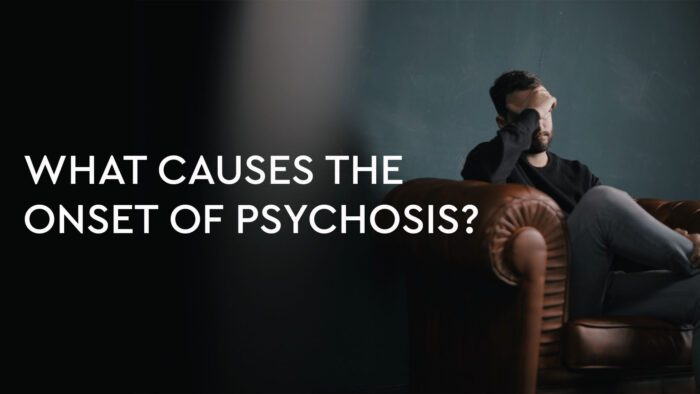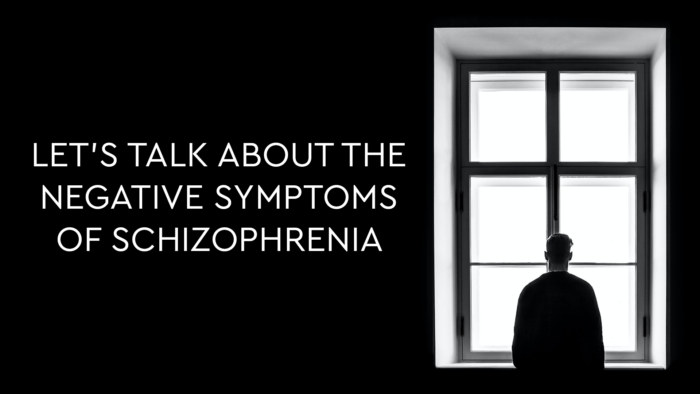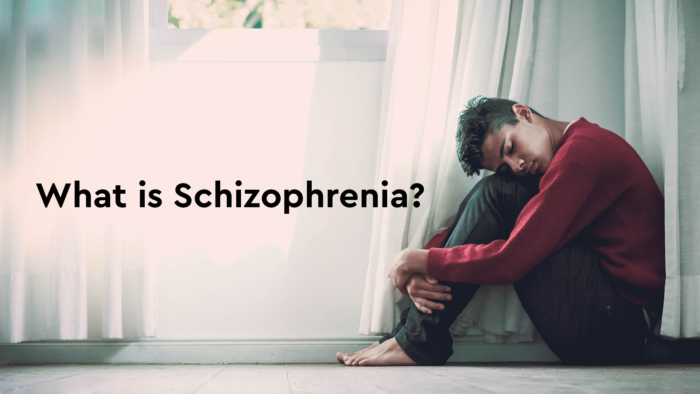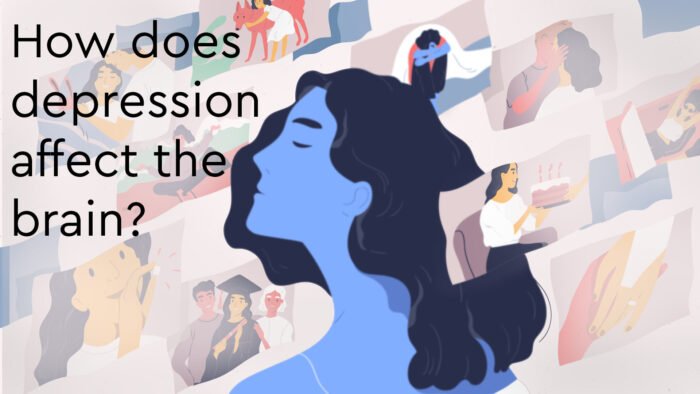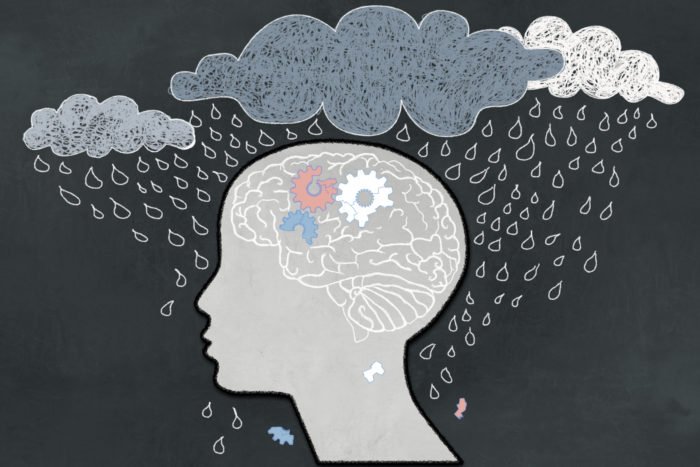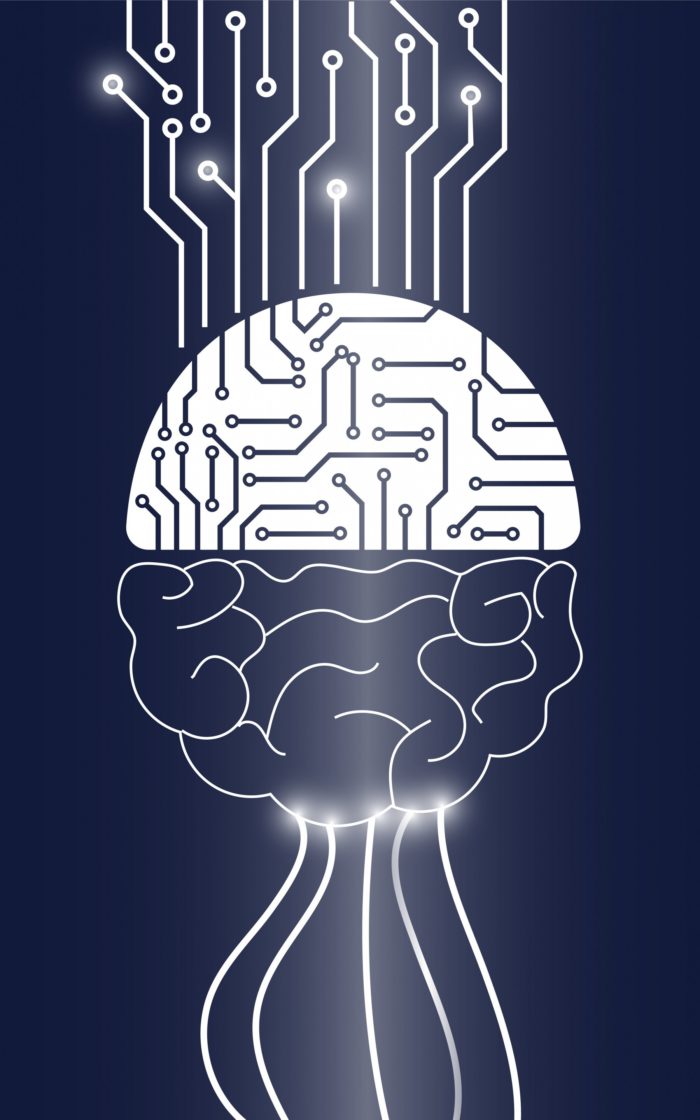Most Popular
How to Support a Loved One in Cognitive Therapy
Going through cognitive therapy can be difficult and frustrating for patients, but it can be incredibly rewarding. Supporting a loved one in cognitive therapy can be very helpful in their recovery.
21 June, 20233 HappyNeuron Pro Exercises For Aphasia
Are you working with people that have aphasia? Here are three HappyNeuron Pro exercises for aphasia that you can use with your clients today!
21 December, 2022Anger and Traumatic Brain Injury
Many survivors of traumatic brain injuries (TBI) often deal with feelings of anger and irritability after their injury. For some, these feelings of anger can range from mild to severe, and have been studied across different samples of people. Post-tr
12 August, 2022
- Areas of Cognition
- Learning Disabilities
- Neurodegenerative Diseases
- Brain Injury
- Language Disorder
- Mental Health
- All
Speech-Language Pathologists and Happy Neuron Pro
Learn how SLPs are using HappyNeuron Pro
17 November, 2025Tips for Preventing Dementia
Explore these lifestyle factors and tips for preventing dementia
18 February, 2025Speech Therapy Exercises for Stroke Patients
This article explores how speech therapy exercises for stroke patients can be utilized, offering a comprehensive approach to recovery.
30 September, 2024Memory Activities for Occupational Therapists
Let’s explore HappyNeuron Pro memory activities for occupational therapists!
23 July, 2024A Guide to Interventions for Cognitive Impairment
Explore different types of interventions for cognitive impairment
19 July, 2024What Are the Cognitive Effects of Autism in Adults?
Learn common cognitive effects of autism in adults
05 July, 2024Nutrition Tips for a Healthy Brain
Explore nutrition for brain health
01 July, 2024How Does Aphasia Impact Verbal Memory?
Explore how aphasia impacts verbal memory
17 June, 2024How Does Memory Impact Executive Functioning?
Explore how memory and executive functioning are interconnected.
05 June, 2024How to Love Someone with Aphasia
When faced with challenges like aphasia, love can become even more profound.
29 May, 2024How Do We Use Reasoning Skills in Daily Life?
Delve into reasoning and its role in our daily routines.
15 May, 2024How Does a Brain Injury Impact Language Skills?
Explore how brain injury can affect language skills, and how rehabilitation and support may help rebuild these skills.
24 April, 2024How Does Language Develop in Early Childhood?
Understand the intricacies of how language skills develop.
22 April, 2024Does Teaching Children Sign Language Help With Language Development?
Let's explore the benefits of teaching children sign language.
15 April, 2024The Language of Laughter
Let’s explore how laughter is involved in speech and language.
01 April, 2024How to Use HappyNeuron Pro for Traumatic Brain Injury
Let's explore how HappyNeuron Pro can be utilized to treat Traumatic Brain Injury.
08 March, 2024The Positive Effects of Social Interaction for Dementia
In this article, we’ll explore the relationship between social interaction and dementia.
07 February, 2024The Impact of School-Based Cognitive Therapy
Let's explore the role of school-based cognitive therapy, shedding light on how it can contribute to students' overall well-being and scholastic achievements.
22 January, 2024Our New Year Resolutions for Brain Health
In this article, we'll explore impactful New Year's goals aimed at enhancing cognitive health.
29 December, 2023The Surprising Cognitive Health Benefits of Winter
Beneath the surface, winter holds some surprising benefits for cognitive health.
25 December, 2023Fun Cognitive Activities for Kids During the Holidays
In this article, we'll explore exciting cognitive activities for kids to enjoy during the holidays, featuring additional worksheet exercises to add a dash of educational holiday fun!
22 December, 2023Can Volunteering Boost Brain Health?
In this article, we'll explore how volunteering can be a powerful ally for maintaining brain health.
06 December, 2023Why Are Seasons Important for Brain Health?
Let’s dive into how seasons affect brain health and cognitive function.
01 December, 2023Can Gratitude Improve Cognitive Health?
Gratitude is often associated with positive mental and emotional well-being, but can it improve our cognitive health as well?
15 November, 2023How To Help Kids Practice Language Skills On Halloween With Fun Activities
Halloween is an opportunity for creative communication! We can help kids learn through fun and engaging Halloween language activities.
30 October, 2023How Climate Change Affects Cognitive Function
Climate change has far-reaching implications, including for our cognitive health.
02 October, 2023How Low Testosterone Can Affect Cognition
Testosterone is a hormone that plays a significant role in the human body. How do low testosterone levels affect cognition?
08 September, 2023How Does Menopause Affect Cognition?
Menopause is known for physical and emotional side effects, however, the impact on cognition is often overlooked.
01 September, 2023Can AI Provide Communication Assistance to People with Aphasia?
In this blog post, we explore how emerging AI technology could make an impact on the lives of individuals with aphasia.
16 August, 2023How does MS impact cognition?
Effects of MS may include physical symptoms as well as cognitive symptoms.
04 August, 2023The Cognitive Science Behind Brain Fog
What exactly is brain fog, and what does cognitive science tell us about its origins and effects?
28 July, 2023What Are Microglial Cells and How Do They Impact Cognition?
According to recent research, microglial cells within our brains are unsung heroes of cognitive health.
14 July, 2023How Does Grief Affect Our Cognition?
Grief can be a life-changing experience, and it’s no wonder it can change our brains.
09 June, 2023How Music Rewires the Brain
Music can make us feel strong emotions, but did you know it’s healthy for our brains as well?
24 May, 2023Why We Need Omega-3s for Cognition and Mental Health
What’s the big deal with Omega-3s and cognition? How can we get more Omega-3 in our diets?
12 May, 2023Does hearing loss play a part in cognitive decline?
Researchers have long speculated about possible associations between hearing loss and cognitive decline.
08 May, 2023The Benefits of Music in Speech Therapy
Music can be a great tool for speech-language pathologists to use with clients.
05 May, 2023The Cognitive Effects of War
What are the long term mental health and cognitive effects of war? What methods can help people work through these experiences and hopefully alleviate symptoms of trauma? We’ll explore these questions in this article, referencing studies that have ex
01 May, 2023How Nature Impacts Cognitive Performance
Research has shown that exposure to nature may positively impact cognitive performance for people of all ages.
19 April, 2023Language exercises for patients with Autism Spectrum Disorder
Individuals with Autism Spectrum Disorder (ASD) typically experience challenges with communication and social skills. Completing language exercises with an SLP is one way to address these challenges.
17 April, 2023What is childhood aphasia?
In this article, we’ll focus on why childhood aphasia occurs, the different types, and how it may be treated through cognitive therapy.
12 April, 2023How learning a new language changes the brain
It turns out that learning a new language changes the brain! Let’s take a look at the interesting effects on the brain that come from speaking a second language.
10 April, 2023What are the different types of aphasia?
Aphasia is a language impairment typically caused by a stroke or other brain injury. It can affect both the understanding and production of speech and language.
05 April, 2023How does laughter affect cognition?
Laughter has an important role in our lives. It often helps to improve mood and can even help relationships last longer. But how does laughter affect cognition specifically? Let’s take a look at the research!
31 March, 20233 ways that pets can improve cognitive health for older adults
Whether you’re a cat or a dog person, here’s some good news! A recent study shows that owning pets improve cognitive health for adults over the age of 65.
03 February, 2023Research shows that cognitive stimulation may alleviate cognitive decline in older adults
More and more research is showing the benefits of cognitive stimulation. A new study shows the benefits of cognitive games in mitigating cognitive decline in older adults.
30 January, 2023Activities to help with stroke recovery
In addition to a healthy diet and exercise, there are many activities that can help someone with stroke recovery. Physical therapy may be necessary for physical recovery, and equally important is exercising the brain. Here are some of the best ways t
23 January, 2023Why you need sugar for a healthy brain
Sugar plays a crucial role in our brain health and cognitive function. However, too much can be detrimental to our health. So let’s break it down. What is the relationship between sugar and brain health, and how much is too much?
13 January, 2023Can stress be good for us?
Stress can sometimes feel productive, like when you’re worried about an assignment so you work hard on it to make sure you do a great job. However, stress can also feel completely overwhelming and bad for our mental health. Can stress be good for us?
11 January, 2023Areas Of Cognition to Work On in the New Year
New Year’s resolutions are a great way to enter into a new mindset and achieve goals that improve your life. Why not help your clients set goals to improve their cognition this year? Setting goals together at the beginning of the year could help clie
30 December, 2022The Key Differences Between Dementia and Alzheimer’s
There is a common misconception that dementia and Alzheimer’s are two separate conditions, however this isn’t exactly the case.
23 December, 20223 HappyNeuron Pro Exercises For Aphasia
Are you working with people that have aphasia? Here are three HappyNeuron Pro exercises for aphasia that you can use with your clients today!
21 December, 2022Resources for new SLP graduates
Although you already have a wealth of knowledge from your studies, having additional websites, software, and books for further education and support will always be helpful. With this in mind, here are a few of our favorite resources for new SLP gradu
09 December, 2022How to Practice Language Skills Over the Holidays
Holidays may mean more conversations and potentially a break from formal therapy sessions. Here are 5 ways to continue practicing your language skills, even when you aren't in therapy, over the holiday.
02 December, 2022What 3 Cognitive Components Should You Work On For Aphasia?
Aphasia is a condition that reflects the loss of language. Depending on the nature of aphasia, a person may have trouble producing and/or understanding language. Some people with aphasia may not understand spoken language but are able to understand w
30 November, 2022How Menopause May Affect Memory
When a woman reaches her late 40s or 50s, a natural decline in reproductive hormones begins the cycle of menopause. After 12 months without a menstrual cycle, a woman is officially in the state of menopause. During this uncomfortable time many experi
20 July, 2022Memory May Improve Through Treating Sleep Apnea
Sleep is one of the most important parts of everyday life. It allows the brain to take a break and recharge, as well as preserve and consolidate one’s memory and any new information learned earlier in the day. However, sleep can be interrupted, thus
11 July, 2022Working with Aphasia? How Bird Songs Can Help!
Aphasia is a common disorder resulting from a stroke that impairs a person’s ability to produce and understand language. Speech therapists often work with a person on verbal fluency and verbal memory skills. These elements are critical cognitive func
06 July, 2022What is Broca’s Aphasia?
When someone has a stroke on the left side of their brain, they may have difficulty producing speech. This condition is known as Broca's aphasia. Many people encounter those with Broca's aphasia but do not understand what it is. In this blog post, we
04 July, 2022How Does Mathematics Anxiety Impair Mathematical Abilities?
Society requires us to have adequate ability to perform mathematical calculations. Life events, such as buying a home or even comparing prices of items within a store, require working knowledge of mathematics. In childhood, many children have difficu
25 February, 2022How an Aerobic Workout May Help To Improve Neurological Rehabilitation
Aerobic exercise has been studied extensively for its physical, mental, and cognitive health benefits. Of interest is how often physical therapists may prescribe an aerobic exercise regimen for their clients with neurological disorders. The utilizati
20 February, 2022Cognitive Rehabilitation of Memory Problems in Patients with Epilepsy
If you live in the northern hemisphere, you are probably familiar with the drastic change of seasons. With the switch from the summer to the fall comes not only cooler weather, but less daily sunlight. This may cause people to experience seasonal aff
27 December, 2021What Are Memories For?
What exactly are memories? We all have them, but do we really know what memories truly are? This question has led to works of art, literature, and research in order to understand these illusive phenomenons. In everyday life, memories allow us to reme
22 November, 2021Why Mary Ann assigns Home Exercises
Mary Ann has a voluminous amount of information to share for SLPs who work with TBI patients. In this mini segment, she discusses how and why she uses the home exercise feature of HappyNeuron Pro.
05 November, 2021Why Cognitive Flexibility Is Crucial & How Can People Improve It?
The term “cognitive flexibility” is often said to be an important part of understanding our thoughts and emotions, but what does it even mean? Simply put, it is a set of cognitive abilities including creativity, imagination, and curiosity, that work
01 November, 2021How Do SLPs help MVA Patients
SLPs are involved in the recovery process of clients with different medical conditions. In acquired brain injury through a motor vehicle accident, damage to the brain may result in trouble speaking due to physical injuries, difficulty swallowing, and
20 September, 2021What Factors Influence Return To Work After a Motor Vehicle Accident?
Motor vehicle accidents are a common cause of brain injury in teens and adults. A common concern of patients who have experienced a brain injury is their ability to live independently. Part of being able to live independently involves being able to w
01 September, 2021Can Intensive Speech & Language Therapy Improve Language in Aphasia Patients Post-Stroke?
Aphasia commonly occurs after someone experiences a stroke. When a closed head injury occurs in the left hemisphere, a person may lose the ability to produce and understand language. Commonly, people think of aphasia as Broca’s aphasia, where a perso
09 August, 2021Which ‘working’ components of working memory aren’t working in youth with ADHD?
Working memory is a complex cognitive function that consists of three skills: reordering, updating, and dual processing incoming information. Clinical providers and researchers are trying to better understand which working components of working memor
02 July, 2021The Three Components of Working Memory
Working memory is a multifaceted cognitive function that allows us to retain and manipulate incoming information for a short period of time. We use working memory when we have to remember a phone number, follow a conversation with a friend, and when
30 June, 2021The Benefits of Swimming for Autism Spectrum Disorder
Children with autism spectrum disorder may not get enough physical activity in their daily lives. Many physical activities that children at young ages engage in are team sports, such as soccer. Children with autism spectrum disorder may have difficul
04 June, 20217 Myths about Dyslexia
With dyslexia being labeled as a learning disability, there are many misconceptions and myths about dyslexia. With recent research, there is more information and a better understanding of dyslexia than ever before! To better understand and help a lov
24 May, 2021You Can Improve Verbal and Spatial Memory in Older Adults with Fun. Here’s How.
When we think of improving memory, we think of performing memorization exercises, digital cognitive therapy exercises, and working on memory worksheets for adults. However, there is more than practicing memorization strategies for improving memory, a
29 March, 2021[Video] The Surprisingly Dramatic Role of Nutrition in Mental Health
Nutrition is one of the most underlooked factors contributing to mental health well-being. Researchers are beginning to understand the role of the mind-gut connection, and how the food we eat affects our behavior. Nutrition interventions offer promis
01 March, 20215 Ways SLPs can Help Their Clients Improve Language Skills Over the Holidays
Holidays may mean a break from formal therapy sessions, but you can help your clients build their language skills even over the holiday season. Here are 5 ways that SLPs can help their clients improve their language skills over the holiday.
16 December, 2020Why Word Retrieval Therapy Helps Dementia
Primary progressive aphasia (PPA) is a gradual loss of language ability associated with dementia. There are 3 variants of PPA that impact speech and language abilities differently. Speech and language pathologists (SLPs) may work with clients that ha
06 November, 2020The Cognitive Connection Between Executive Functions and Language Skills
Language is one of the ways we communicate. It is one that when it is lost it is greatly missed. Kyra's background and work with executive function skills with the smart but struggling learner, has led her to a better understanding of the connection
30 October, 2020Common Cognitive Disorders of Language
Language is a complex cognitive skill that involves many regions of the brain. Stroke, brain injury, disease, developmental disabilities, and aging can cause people to lose their language abilities and not be able to communicate with others. In this
08 July, 2020From Grunts to Words, How Language Works Explained by Gifs
Language is a cognitive skill that we all use to communicate and interact with the world around us. Words are connected in meaningful patterns to form logical sentences or syntax. In this blog post, we outline the three components that makeup and exp
24 June, 2020How to Improve Language Skills
We use language every day to communicate thoughts, feelings, and ideas. When the ability to produce or comprehend language is lost, people find themselves not able to work, go to school, participate in social situations. This may also be an influe
08 June, 20203 Kinds of Therapists Who Work With Language
Language is what helps us express ourselves and understand the world around us. When the language section of our brain gets injured, it can cause a lot of secondary problems. These difficulties can cause a person to feel frustrated and isolate themse
28 May, 2020The Complexity of Language
Language is a cognitive skill that binds people together. Language allows people to communicate complex thoughts and emotions with one another. While we often think of language as the words that come out of our mouths or the sentences we write on pap
22 May, 2020The Complex Skill of Language
What is Language? While many complex definitions exist, language is the way that people communicate. In a language, words are connected in meaningful patterns to form logical sentences (syntax). The smallest component of language is a morphe
25 July, 2019
Group-Based Treatment: Benefits and Tips
How can group based treatment sessions help clinicians and their clients?
19 December, 2025The Connection Between Brain Fog and Food
How does food relate to brain fog?
05 December, 2025Session Guidelines: HappyNeuron Pro and Assistive Technology
How to integrate HappyNeuron Pro with AT
13 November, 2025Getting Diagnosed with ADHD as an Adult
An ADHD diagnosis can make a big difference in someone's life.
31 October, 2025How Changing Seasons Affect Individuals with ADHD
How do seasons affect individuals with ADHD, and how can clinicians support them?
17 October, 2025Supporting ADLs and IADLs with HappyNeuron Pro
Activities of Daily Living (ADLs) are essential for autonomy.
03 October, 2025Developing Home Exercise Programs with HappyNeuron Pro
How to create HEPs with HappyNeuron Pro
26 September, 2025A Guide for Grad Students and New Practitioners
Happy Neuron Pro is here to support students and new graduates!
05 September, 2025How to Help Clients Regulate Emotions
Here are our tips for helping clients learn how to regulate emotions.
07 February, 2025How to Work on Attention Skills During the Holidays
Strategies to work on attention during the holidays
18 December, 2024The Secret Superpowers of ADHD
In this article, we’ll explore the hidden strengths that often come with ADHD.
28 October, 2024Strategies for ADHD and Social Skills
Many individuals with ADHD struggle with social cognition, which refers to the ability to perceive, interpret, and respond to social cues.
16 October, 2024How to Make the Most of HappyNeuron Cognitive Worksheets
In whatever setting you’re using these worksheets, we want to help you make the most of this resource!
14 October, 2024How to Make the Most of Cognitive Therapy
Let's talk about how to make the most of cognitive therapy!
11 October, 2024How to Help Clients Step Out of Their Comfort Zone
A vital aspect of a clinician’s work is encouraging clients to stretch beyond their comfort zones.
16 September, 2024Strategies for Students with Processing Speed Challenges
Practical strategies to help students with processing speed difficulties
11 September, 2024The Role of Occupational Therapy for Autism
Learn about occupational therapy for autism
02 August, 2024What are the Cognitive Effects of Autism in Children?
Learn what cognitive effects autism may have in children
08 July, 2024What Are the Cognitive Effects of Autism in Adults?
Learn common cognitive effects of autism in adults
05 July, 2024Does Teaching Children Sign Language Help With Language Development?
Let's explore the benefits of teaching children sign language.
15 April, 2024The Language of Laughter
Let’s explore how laughter is involved in speech and language.
01 April, 2024How to Manage Sensory Overload in Adults
In this article, we will delve into effective strategies and practical tips to help manage sensory overload in adults and navigate challenging moments.
16 February, 2024Exploring the Social Benefits of Group Cognitive Therapy
This article explores the social benefits of group cognitive therapy, shedding light on how shared experiences, mutual support, and collective growth can contribute to positive outcomes.
26 January, 2024The Impact of School-Based Cognitive Therapy
Let's explore the role of school-based cognitive therapy, shedding light on how it can contribute to students' overall well-being and scholastic achievements.
22 January, 2024Fun Cognitive Activities for Kids During the Holidays
In this article, we'll explore exciting cognitive activities for kids to enjoy during the holidays, featuring additional worksheet exercises to add a dash of educational holiday fun!
22 December, 2023How to Enhance Pediatric Care with Digital Cognitive Exercises for Kids
In this article, we will explore how clinicians can effectively use digital cognitive exercises for kids to enhance their overall development and well-being.
20 November, 2023Should I Use Digital Or Paper Cognitive Assessments?
Explore the choice between digital vs. paper assessments
27 September, 2023How to Support a Loved One in Cognitive Therapy
Going through cognitive therapy can be difficult and frustrating for patients, but it can be incredibly rewarding. Supporting a loved one in cognitive therapy can be very helpful in their recovery.
21 June, 2023Should I Say “Person With Autism” Or “Autistic Person”?
You may have heard different answers concerning the correct way to refer to people within the autistic community. Is the correct term person with autism, or autistic person?
12 June, 2023Occupational Therapy Exercises for Patients with Autism Spectrum Disorder
Occupational therapy can often be helpful to people with ASD. In this article, we'll explore occupational therapy exercises for autism.
22 May, 2023The Benefits of Music in Speech Therapy
Music can be a great tool for speech-language pathologists to use with clients.
05 May, 2023How to support employees with Autism Spectrum Disorder
If the appropriate considerations and accommodations are made, employees with autism can very often thrive in their jobs.
26 April, 2023Language exercises for patients with Autism Spectrum Disorder
Individuals with Autism Spectrum Disorder (ASD) typically experience challenges with communication and social skills. Completing language exercises with an SLP is one way to address these challenges.
17 April, 2023How to Help Patients Improve Sustained Attention
You may have patients who struggle with different types of attention. One that proves difficult for many people is maintaining sustained attention. In this article, we'll discuss how to improve sustained attention skills.
03 March, 20238 tips for better communication with patients
Research shows that a positive relationship between patient and clinician can improve therapy outcomes. How can clinicians improve communication with patients?
27 February, 2023What is the difference between intrinsic and extrinsic motivation?
There are different types of motivation, and understanding them can give us a lot of insight into our own behaviors and emotions, as well as those of patients.
22 February, 2023Digital exercises to improve processing speed
Here are a few of the best exercises to work on processing speed.
27 January, 2023Why you should limit the number of exercises available to your patients
When using HappyNeuron Pro, you have the option of limiting cognitive exercises visible to your patient. In fact, this is recommended!
25 January, 2023Areas Of Cognition to Work On in the New Year
New Year’s resolutions are a great way to enter into a new mindset and achieve goals that improve your life. Why not help your clients set goals to improve their cognition this year? Setting goals together at the beginning of the year could help clie
30 December, 2022How to Help Students Cope With Visual Overstimulation in the Classroom
Visual overstimulation occurs when one’s surroundings are too visually stimulating, causing overwhelm and distraction.
16 December, 2022How to Help Kids Cope with Visual Overstimulation During the Holidays
Visual overstimulation occurs when one’s surroundings are too visually hectic and cause feelings of overwhelm and distractedness. Overstimulation can happen to anyone, though it is prevalent among people with autism or ADHD.
14 December, 2022Resources for new SLP graduates
Although you already have a wealth of knowledge from your studies, having additional websites, software, and books for further education and support will always be helpful. With this in mind, here are a few of our favorite resources for new SLP gradu
09 December, 2022Giving Effective Instructions
You may notice that packaging and delivering information slightly differently to your child with ADHD can result in better outcomes. Giving instructions can be one of those moments. ADHD affects executive function skills specifically the ability to
15 October, 2022How to Navigate ADHD in College
All around the world, many college students encounter various social and academic problems. Among these problems is attention deficit hyperactivity disorder or ADHD. Students who are diagnosed or experience ADHD symptoms may struggle with other menta
08 August, 2022How Does Mathematics Anxiety Impair Mathematical Abilities?
Society requires us to have adequate ability to perform mathematical calculations. Life events, such as buying a home or even comparing prices of items within a store, require working knowledge of mathematics. In childhood, many children have difficu
25 February, 2022The Importance of Praise in Parenting a Child with ADHD
Many experts including Dr. William Dodson estimate that children with ADHD on average receive 20,000 more negative messages than other children. The importance of giving praise can’t be overestimated. Kids with ADHD need our feedback to be motivati
19 November, 2021Expert Advice – ADHD + TBI ?
Natalie is back with some expert advice about how to work with patients who have both ADHD and a TBI. If you love this video you MUST check out her entire interview found in the expert interviews today!
07 July, 2021Which ‘working’ components of working memory aren’t working in youth with ADHD?
Working memory is a complex cognitive function that consists of three skills: reordering, updating, and dual processing incoming information. Clinical providers and researchers are trying to better understand which working components of working memor
02 July, 2021The Benefits of Swimming for Autism Spectrum Disorder
Children with autism spectrum disorder may not get enough physical activity in their daily lives. Many physical activities that children at young ages engage in are team sports, such as soccer. Children with autism spectrum disorder may have difficul
04 June, 2021Natalie Mackenzie – BIS Services
Brain injuries are complex injuries. Heather Condello and her team of occupational therapists at Complex Injury Rehab - The Brain, Spine & Mental Health Clinic understand that. Heather and Ayushi, one of Heather's skilled OTs, sit down with Dustin an
26 May, 20217 Myths about Dyslexia
With dyslexia being labeled as a learning disability, there are many misconceptions and myths about dyslexia. With recent research, there is more information and a better understanding of dyslexia than ever before! To better understand and help a lov
24 May, 2021How to Love Someone with Dyslexia
Love is different for everyone, and yet it is something we all desire. Each person is different and unique in their own way. Sometimes it is easy to love someone, and other times it can be challenging. At the end of the day, it all comes down to the
21 May, 2021How Does Dyslexia Impact Learning Strategies and Study Approaches in Post-secondary Students?
Dyslexia is a lifelong learning disability. Often diagnosed in childhood, children with dyslexia have substantial difficulty with reading in comparison to their peers. In adulthood, these reading difficulties may persist. Little is known about how dy
14 May, 2021[Video] TEDTalk -The True Gifts of a Dyslexic Brain
Advocate and educator Dean Bragonier offer people his insight into Dyslexia in this Ted Talk. By explaining the history and understanding of the Dyslexia brain, Dean reframes a perceived weakness into the superpower of these individuals. This talk te
11 May, 2021What is a Dyslexic Brain?
Dyslexia is classified as a learning disability that affects an individual’s ability to read, spell, write, and speak. It is often known for causing poor reading skills. A key sign of dyslexia is trouble decoding words (matching letters to sounds) an
07 May, 2021[Video] TEDTalk – Failing at Normal: An ADHD Success Story
Jessica McCabe is an adult who struggled with ADHD as a child into her adulthood. After battling the impacts of ADHD in her own life, she became an ADHD educator to help people living with ADHD as well as parents, friends, teachers, and other peers u
30 April, 2021Why Some Children Struggle to Learn Fractions
Learning fractions is an important mathematical skill. We use fractions in professions such as life sciences and auto-mechanics, as well as everyday life for quantifying parts of a whole. However, many elementary and middle school-aged children have
26 April, 2021How Does ADHD Impact Friendships in Children?
ADHD impacts people throughout their lifespan. For children, ADHD can cause a child to have difficulty focusing during class, keeping track of assignments and their due dates, blurt out responses to questions before they have been completed, and talk
21 April, 2021[Video] What to do When Your Child is Diagnosed as “Fine”
Parents take their children for assessments when their child is thought to have a learning disability. Too often, children are diagnosed as "fine". This diagnosis is troubling as "fine" does not describe the cognitive complications a child may be exp
17 July, 2020School-Based Telepractice for Occupational Therapy
Administrating and supplying occupational therapy services within a school system is challenging. There are a lot of barriers to overcome that inhibit children from receiving proper care. With the advancement of technology, more and more children are
15 July, 2020[Video] TEDTalk – The World Needs All Kinds of Minds
Temple Grandin was diagnosed with autism as a child. In this Ted Talk, she explains how her brain works. Her visual processing helps her solve problems that a neurotypical brain cannot. She explains why we need different types of thinkers and how to
30 April, 2020Do I Say, “Special Needs” or “Disability”?
This is a question that gets asked often. These terms have felt for years to be interchangeable, but are they? The answer to that is, no. Referring to someone as “special needs, retarded, or slow” is no longer politically correct. The proper
24 April, 2020What is an Intellectual Disability?
Before diving deep into what is an intellectual disability, it is best to explain what it is not. Intellectual disabilities are not mental illnesses, like depression, there is no cure for intellectual disabilities and it is not contagious. An intelle
22 April, 2020[Video] TEDTalk – Why Everything You know About Autism is Wrong
At the age of 25, Jac den Houting was diagnosed with autism. While many parents of children worry when their child is diagnosed with autism, Jac describes it as the best thing to ever happen to her. In this talk, Jac discusses how the concepts of neu
22 April, 2020Autism and The Brain
For years, caregivers and loved ones of someone with autism have been searching for an understanding as to why. Why does their child or loved why, function the way they do. Until recently, researchers and clinicians only had theories. With the advanc
20 April, 20205 Things to Know About ADHD
Attention Deficit Hyperactivity Disorder (ADHD) is more than just a behavior problem. Research has unveiled that genetic, environmental, and neuropsychological factors impact behaviors associated with the disorder. Here are the 5 most important thing
01 April, 2020The Complex Skill of Language
What is Language? While many complex definitions exist, language is the way that people communicate. In a language, words are connected in meaningful patterns to form logical sentences (syntax). The smallest component of language is a morphe
25 July, 2019
Tips for Preventing Dementia
Explore these lifestyle factors and tips for preventing dementia
18 February, 2025The Positive Effects of Social Interaction for Dementia
In this article, we’ll explore the relationship between social interaction and dementia.
07 February, 2024Can Yoga Improve Cognitive Function?
Can yoga help to ward off cognitive decline? How does it affect cognition in general?
03 July, 2023How to Support a Loved One in Cognitive Therapy
Going through cognitive therapy can be difficult and frustrating for patients, but it can be incredibly rewarding. Supporting a loved one in cognitive therapy can be very helpful in their recovery.
21 June, 2023Can Retiring Early Accelerate Cognitive Decline?
Many people choose to retire early if they have the financial resources to do so. This can be good for us in many ways! However, it’s worth exploring research that tells us something we may not want to hear - that retiring early could potentially acc
02 June, 2023How Music Rewires the Brain
Music can make us feel strong emotions, but did you know it’s healthy for our brains as well?
24 May, 2023Helping Seniors Build Healthy Habits
Helping seniors build healthy habits can help them have a comfortable and happy lifestyle.
22 May, 2023Does hearing loss play a part in cognitive decline?
Researchers have long speculated about possible associations between hearing loss and cognitive decline.
08 May, 20233 ways that pets can improve cognitive health for older adults
Whether you’re a cat or a dog person, here’s some good news! A recent study shows that owning pets improve cognitive health for adults over the age of 65.
03 February, 2023Research shows that cognitive stimulation may alleviate cognitive decline in older adults
More and more research is showing the benefits of cognitive stimulation. A new study shows the benefits of cognitive games in mitigating cognitive decline in older adults.
30 January, 2023Digital exercises to improve processing speed
Here are a few of the best exercises to work on processing speed.
27 January, 2023The Key Differences Between Dementia and Alzheimer’s
There is a common misconception that dementia and Alzheimer’s are two separate conditions, however this isn’t exactly the case.
23 December, 2022Dementia Care in First Nations Elderly
For years, researchers and medical professionals have studied the outcomes of brain injury care in order to identify critical factors that influence a patient’s recovery. Two such factors that have been examined to contribute to this include race and
13 July, 2022Which Cognitive Training Method is Best For My Client with Alzheimer’s Disease?
Addressing cognitive decline in Alzheimer’s patients is a common concern of activity directors, occupational therapists, psychologists, speech-language pathologists, and other clinical professionals working with this patient demographic. Alzheimer’s
07 April, 2021Hogeweyk Dementia Only Village
Hogeweyk, located in the Netherlands, is one of the few dementia care facilities in the world of its kind. Hogeweyk isn’t your typical hospital-style nursing home though. In fact, you wouldn’t even know it was a hospital by the looks of it. Focused o
02 December, 2020Using Positive Psychology & Telehealth To Improve Mood in Older Adults
Humans need regular social interaction. With older populations, the risk of isolation increases as older adults tend to develop physical disabilities and cognitive impairment. Not being able to have regular social interactions can cause older adults
20 November, 2020[Video] TEDTalk – What You Can Do to Prevent Alzheimer’s Disease
Preventative health involves manageable changes that people can implement into their everyday lives. Some ways people can actively prevent Alzheimer’s disease include proper sleep hygiene, getting enough physical activity, and eating a diet that is r
18 November, 20203 Ways SLPs Are Involved In Alzheimer’s Disease Care
Alzheimer’s disease is a debilitating neurological disease that occurs when plaques build up within the brain tissue. As the disease progresses, cognitive function declines. While SLPs are traditionally thought to work with only speech and language,
16 November, 2020Cognitive Stimulation Therapy for Dementia from an Occupational Therapist Lens
Occupational therapists are instrumental in the care of people living with dementia.Occupational therapists have a holistic understanding of how cognitive functioning impacts activities of daily living. They can provide cognitive stimulation therapy
11 November, 2020[Video] TEDTalk – Living with Dementia: To Be or Not To Be
Many people, including therapists, know or will know someone who develops dementia. For people whose parents and grandparents have developed dementia, finding care options is very difficult as people want to ensure that their loved ones have the best
09 November, 2020Why Word Retrieval Therapy Helps Dementia
Primary progressive aphasia (PPA) is a gradual loss of language ability associated with dementia. There are 3 variants of PPA that impact speech and language abilities differently. Speech and language pathologists (SLPs) may work with clients that ha
06 November, 2020
How Neuroplasticity Works in Stroke Recovery
Learn how neuroplasticity gets to work after a stroke.
12 July, 2024How Does a Brain Injury Impact Language Skills?
Explore how brain injury can affect language skills, and how rehabilitation and support may help rebuild these skills.
24 April, 2024How to Use HappyNeuron Pro for Traumatic Brain Injury
Let's explore how HappyNeuron Pro can be utilized to treat Traumatic Brain Injury.
08 March, 2024How a Traumatic Brain Injury Can Impact a Student in School
How can we help students with TBIs?
26 February, 2024How to Support a Loved One in Cognitive Therapy
Going through cognitive therapy can be difficult and frustrating for patients, but it can be incredibly rewarding. Supporting a loved one in cognitive therapy can be very helpful in their recovery.
21 June, 2023The Benefits of Music in Speech Therapy
Music can be a great tool for speech-language pathologists to use with clients.
05 May, 2023What is the EyeBOX device?
Here at HappyNeuron, we always have an eye out for the latest scientific findings and technology that may be useful to clinicians and their patients. We’re very interested in the EyeBOX device, which is a new tool for assessing concussions.
03 May, 2023What are the different types of aphasia?
Aphasia is a language impairment typically caused by a stroke or other brain injury. It can affect both the understanding and production of speech and language.
05 April, 2023How to Help Patients Improve Sustained Attention
You may have patients who struggle with different types of attention. One that proves difficult for many people is maintaining sustained attention. In this article, we'll discuss how to improve sustained attention skills.
03 March, 2023How a stroke can affect social cognition
The effects of a stroke can vary widely. For some, a stroke can affect social cognition and social behavior.
06 February, 2023Digital exercises to improve processing speed
Here are a few of the best exercises to work on processing speed.
27 January, 2023Activities to help with stroke recovery
In addition to a healthy diet and exercise, there are many activities that can help someone with stroke recovery. Physical therapy may be necessary for physical recovery, and equally important is exercising the brain. Here are some of the best ways t
23 January, 2023How To Use HappyNeuron Pro for Stroke Rehabilitation
You may be wondering what exercises are available for stroke recovery, or how HappyNeuron Pro can be used to work with people who have had a stroke.
18 January, 2023What is Neuroplasticity, and why is it important?
Neuroplasticity is the brain’s ability to modify connections and change its activity in response to stimuli, basically “re-wiring” itself. So, what does this mean?
09 January, 2023Areas Of Cognition to Work On in the New Year
New Year’s resolutions are a great way to enter into a new mindset and achieve goals that improve your life. Why not help your clients set goals to improve their cognition this year? Setting goals together at the beginning of the year could help clie
30 December, 2022Setting Cognitive Goals for the New Year
Clinicians may want to work with clients on setting cognitive goals - these could be anything from feeling happier, to improving their attention or memory.
28 December, 2022Resources for new SLP graduates
Although you already have a wealth of knowledge from your studies, having additional websites, software, and books for further education and support will always be helpful. With this in mind, here are a few of our favorite resources for new SLP gradu
09 December, 2022How Does Brain Injury Impact American Indian and Alaska Native Children?
For years, researchers and medical professionals have studied the outcomes of brain injury care in order to identify critical factors that influence a patient’s recovery. Two such factors that have been examined to contribute to this include race and
23 September, 2022TBI in Children
TBI stands for traumatic brain injury, and occurs when one experiences damage to the brain. This type of damage is specific, and creates a disruption in the functioning of the brain. Not all injuries to the head are TBIs, but all TBIs are severe inju
19 August, 2022Anger and Traumatic Brain Injury
Many survivors of traumatic brain injuries (TBI) often deal with feelings of anger and irritability after their injury. For some, these feelings of anger can range from mild to severe, and have been studied across different samples of people. Post-tr
12 August, 2022Why You Should Work on Processing Speed with Stroke Patients
Processing speed deficits are among the most common cognitive deficits patients with stroke experience, along with deficits in attention and executive functioning. Processing speed has been found to be clinically significant, as people with stroke co
22 April, 2022How an Aerobic Workout May Help To Improve Neurological Rehabilitation
Aerobic exercise has been studied extensively for its physical, mental, and cognitive health benefits. Of interest is how often physical therapists may prescribe an aerobic exercise regimen for their clients with neurological disorders. The utilizati
20 February, 2022What Are Concussions?
Many people have known someone who has or has personally experienced a concussion. Concussions are prevalent, but people often do not know what exactly they are. In this blog post, we discuss what concussions are and what can be done about them.
02 February, 2022A TBI helped him become an Artist
Traumatic brain injuries (TBIs) may sometimes have an unexpected positive impact on one's life. More often than not, TBIs interrupt or inhibit hobbies or lifestyles people once enjoyed. However, brain injury recovery involves the rewiring of one’s pr
08 November, 2021How Do SLPs help MVA Patients
SLPs are involved in the recovery process of clients with different medical conditions. In acquired brain injury through a motor vehicle accident, damage to the brain may result in trouble speaking due to physical injuries, difficulty swallowing, and
20 September, 2021What Factors Influence Return To Work After a Motor Vehicle Accident?
Motor vehicle accidents are a common cause of brain injury in teens and adults. A common concern of patients who have experienced a brain injury is their ability to live independently. Part of being able to live independently involves being able to w
01 September, 2021Let’s Talk About Post-Stroke Depression
Experiencing a stroke is a major life event. A stroke may cause someone to lose cognitive and physical abilities, such as not being able to communicate or use one side of their body. Depending on where the lesion occurs, some people may experience th
18 August, 2021The Striking Benefits of Training Speed and Accuracy of Word Retrieval in Post-Stroke Aphasia
Adults are able to utter about 120 words per minute and may make a speech error once out of every thousand words. If an adult experiences a stroke, they may develop a condition known as aphasia, which greatly reduces their ability to produce and unde
11 August, 2021Can Intensive Speech & Language Therapy Improve Language in Aphasia Patients Post-Stroke?
Aphasia commonly occurs after someone experiences a stroke. When a closed head injury occurs in the left hemisphere, a person may lose the ability to produce and understand language. Commonly, people think of aphasia as Broca’s aphasia, where a perso
09 August, 20215 HappyNeuron Pro Worksheets to Use for Stroke Patients
Stroke is a leading cause of disability in the United States and Canada. People who have experienced a stroke often experience cognitive complications, such as impaired memory and language abilities. Stroke rehabilitation often involves the remediati
19 July, 2021Expert Advice – ADHD + TBI ?
Natalie is back with some expert advice about how to work with patients who have both ADHD and a TBI. If you love this video you MUST check out her entire interview found in the expert interviews today!
07 July, 2021Natalie Mackenzie – BIS Services
Brain injuries are complex injuries. Heather Condello and her team of occupational therapists at Complex Injury Rehab - The Brain, Spine & Mental Health Clinic understand that. Heather and Ayushi, one of Heather's skilled OTs, sit down with Dustin an
26 May, 2021Expert Interview – Natalie Mackenzie
The day has finally arrived. This interview with Natalie is AMAZING! If you work in cognitive rehabilitation from TBIs this is a video you most definitely should like. Natalie Mackenzie has been working in Cognitive Rehabilitation since 2004. She ho
26 May, 2021[Video] An Athlete’s Mindset for Cognitive Healing
Dr. Taher Chugh treats post-concussion care like he would be training an athlete. He approaches them from a holistic approach and has found remarkable similarities as elite athletes. He uses HappyNeuron Pro as part of his treatment. He explains how h
29 January, 2021[Video] TEDTalk – The Most Important Lesson from 83,000 Brain Scans
Dr. Amen discusses the importance of brain scans in medical practice. Many clinical providers do not get a chance to look at their client’s brains, which can greatly impact diagnoses and treatment plans. Dr. Amen shares the importance of “how do you
02 October, 2020[Video] Concussions in the Classroom
This will be the best, most informative 35 minutes of your day. Concussions are more frequent than many people realize. Kyra's 25 years working with TBI has allowed her to experience many different severities and types of concussions. She is well inf
16 September, 2020[Video] TEDTalk – Occupational Therapy and Neuroplasticity After Brain Injury
Occupational therapists are on the front lines working with brain injury. Difficulties OTs face with patients with brain injury include not only the physical challenges related to brain injury but cognitive. Occupational therapists can help patients
21 August, 2020Using Social Media as a Part of Brain Injury Rehabilitation
Social media offers an opportunity for people to connect with one another. On Facebook, people can find ‘groups’ devoted to special interests, causes, and hobbies. For people with brain injury, social media can provide a space for patients to connect
14 August, 2020Living Well After Brain Injury
While exercising regularly promotes physical health, exercising may also provide cognitive benefits. Specifically, attention has been drawn to the potential clinical implications of moderate-intensity exercise for rehabilitation, physical, and mental
12 August, 2020[Video] TEDTalk – A Brain Injury is like a Fingerprint, no Two are Alike
Professional athletes and everyday people are susceptible to brain injury. What is important for both patients with brain injury and clinical providers working with clients with brain injury is to know that no two brain injuries are alike. Learning h
10 August, 2020TBI and Smartphones
While smartphones get a bad reputation from being disruptive in many situations, smartphones can prove to be useful assistive devices for people with traumatic brain injury (TBI). Here is a list of the 5 key features of smartphones and how these feat
15 June, 2020Can Telepractice help a Child with a Brain Injury
If you search on the internet, you can find a wealth of information regarding the use and effectiveness of telepractice for a variety of medical conditions. Telepractice is of particular interest for people living with brain injury. A large number o
12 June, 2020[Video] Concussions and Why You Should Care
Concussions impact all aspects of a child’s life. Kyra’s background in neurotrauma has set her apart in her field. Kyra explains how and why she cares about educating people about concussions. Concussions do impact a child’s ability to learn and Kyr
10 June, 2020How to Date with a Brain Injury
Many people living with brain injury ask “will anyone date me after I have had a brain injury”? The answer is yes. While dating with brain injury is a little known topic, more people are sharing their stories of finding love after brain injury. Peopl
05 June, 2020How SLPs Help Stroke Patients with Aphasia
Speech-language pathologists (SLP’s) play a huge role in stroke rehabilitation. Strokes often cause aphasia. Aphasia can present as a loss of language or as having difficulty comprehending speech. SLP’s may help patients with stroke not only speak bu
25 May, 2020[Video] TEDTalk – What Happens During a Stroke?
Every two seconds, someone in the world has a stroke. Strokes are extremely common, one out of every six people will have one, but what exactly happens? We love this talk because Dr. Vaibhav Goswami explains so clearly what happens and explains what
18 May, 20204 Cognitive Changes After a Stroke
Strokes (or cerebrovascular accidents) are life-changing for people of all ages. While physical changes are common, cognitive changes can occur and impact independence causing people to need support services. Here are 4 important cognitive changes th
04 May, 2020[Video] TEDTalk – My Stroke of Insight
Dr. Jill Bolte Taylor's unique research and medical background makes her Tedtalk extremely insightful. Before she experienced her stroke she was working in a lab that was focused on mapping out the brain. Their goal was to figure out which cells com
01 May, 2020Depression After Traumatic Brain Injury: A Clinical Research Study
Brain-injury causes not only cognitive and physical disturbance, but emotional. Many patients suffer from depression, with a report of approximately 42-52% of patients within a year post-injury. 49% of people suffering from a brain injury develop dep
25 July, 2019
[Video] TEDTalk – How Aphasia Affects the Brain
Aphasia is a loss of language, not a loss of intellect. Over 2 million Americans are living with aphasia as a result of a stroke, brain injury, or neurodegenerative disease. In this video, you can learn about the different kinds of aphasia and how
03 June, 20203 HappyNeuron Pro Exercises For Aphasia
Are you working with people that have aphasia? Here are three HappyNeuron Pro exercises for aphasia that you can use with your clients today!
21 December, 2022Activities to help with stroke recovery
In addition to a healthy diet and exercise, there are many activities that can help someone with stroke recovery. Physical therapy may be necessary for physical recovery, and equally important is exercising the brain. Here are some of the best ways t
23 January, 2023Are You Using Telepractice to Treat Aphasia?
If you answered no, then you may want to consider doing so to help you and your patient with aphasia get the most out of therapy. Why? It has been scientifically proven that treatment intensity and duration are the key ingredients to improving c
07 August, 2020Areas Of Cognition to Work On in the New Year
New Year’s resolutions are a great way to enter into a new mindset and achieve goals that improve your life. Why not help your clients set goals to improve their cognition this year? Setting goals together at the beginning of the year could help clie
30 December, 2022Can AI Provide Communication Assistance to People with Aphasia?
In this blog post, we explore how emerging AI technology could make an impact on the lives of individuals with aphasia.
16 August, 2023Can Intensive Speech & Language Therapy Improve Language in Aphasia Patients Post-Stroke?
Aphasia commonly occurs after someone experiences a stroke. When a closed head injury occurs in the left hemisphere, a person may lose the ability to produce and understand language. Commonly, people think of aphasia as Broca’s aphasia, where a perso
09 August, 2021How and Why You Need to Start an Aphasia Support Group
Aphasia is a devastating result of a stroke that can impair a person’s ability to produce and understand language. Aphasia is life-changing, and routine tasks become challenging. Communication is a socially dependent skill and relies heavily on the l
13 May, 2020How Apraxia Ruins Morning Coffee
Did you know that damage to a person’s left hemisphere can change how they make coffee? Damage to the left hemisphere can cause a person to forget how to use a coffee machine, or even pick up a coffee cup. This cognitive problem is called apraxia.
01 July, 2020How Does a Brain Injury Impact Language Skills?
Explore how brain injury can affect language skills, and how rehabilitation and support may help rebuild these skills.
24 April, 2024How Does Aphasia Impact Verbal Memory?
Explore how aphasia impacts verbal memory
17 June, 2024How SLPs Help Stroke Patients with Aphasia
Speech-language pathologists (SLP’s) play a huge role in stroke rehabilitation. Strokes often cause aphasia. Aphasia can present as a loss of language or as having difficulty comprehending speech. SLP’s may help patients with stroke not only speak bu
25 May, 2020How to Love Someone with Aphasia
When faced with challenges like aphasia, love can become even more profound.
29 May, 2024How to Support a Loved One in Cognitive Therapy
Going through cognitive therapy can be difficult and frustrating for patients, but it can be incredibly rewarding. Supporting a loved one in cognitive therapy can be very helpful in their recovery.
21 June, 2023Setting Cognitive Goals for the New Year
Clinicians may want to work with clients on setting cognitive goals - these could be anything from feeling happier, to improving their attention or memory.
28 December, 2022Speech Therapy Exercises for Stroke Patients
This article explores how speech therapy exercises for stroke patients can be utilized, offering a comprehensive approach to recovery.
30 September, 2024The Benefits of Music in Speech Therapy
Music can be a great tool for speech-language pathologists to use with clients.
05 May, 2023The Cognitive Connection Between Executive Functions and Language Skills
Language is one of the ways we communicate. It is one that when it is lost it is greatly missed. Kyra's background and work with executive function skills with the smart but struggling learner, has led her to a better understanding of the connection
30 October, 2020The Striking Benefits of Training Speed and Accuracy of Word Retrieval in Post-Stroke Aphasia
Adults are able to utter about 120 words per minute and may make a speech error once out of every thousand words. If an adult experiences a stroke, they may develop a condition known as aphasia, which greatly reduces their ability to produce and unde
11 August, 2021What 3 Cognitive Components Should You Work On For Aphasia?
Aphasia is a condition that reflects the loss of language. Depending on the nature of aphasia, a person may have trouble producing and/or understanding language. Some people with aphasia may not understand spoken language but are able to understand w
30 November, 2022What are the different types of aphasia?
Aphasia is a language impairment typically caused by a stroke or other brain injury. It can affect both the understanding and production of speech and language.
05 April, 2023What is Aphasia
Experiencing a stroke can result in many different kinds of cognitive conditions. The most well-known condition resulting from a stroke is called aphasia. Aphasia is the loss of language. Aphasia is a condition that can cause someone to not be able
01 June, 2020What is Broca’s Aphasia?
When someone has a stroke on the left side of their brain, they may have difficulty producing speech. This condition is known as Broca's aphasia. Many people encounter those with Broca's aphasia but do not understand what it is. In this blog post, we
04 July, 2022What is childhood aphasia?
In this article, we’ll focus on why childhood aphasia occurs, the different types, and how it may be treated through cognitive therapy.
12 April, 2023What is Neuroplasticity, and why is it important?
Neuroplasticity is the brain’s ability to modify connections and change its activity in response to stimuli, basically “re-wiring” itself. So, what does this mean?
09 January, 2023Working with Aphasia? How Bird Songs Can Help!
Aphasia is a common disorder resulting from a stroke that impairs a person’s ability to produce and understand language. Speech therapists often work with a person on verbal fluency and verbal memory skills. These elements are critical cognitive func
06 July, 2022
Impairments in Planning and Inhibition Skills in Severe Mental Illness
Learn about the impact of severe mental illness on planning and inhibition skills.
27 May, 2024How to Support a Loved One in Cognitive Therapy
Going through cognitive therapy can be difficult and frustrating for patients, but it can be incredibly rewarding. Supporting a loved one in cognitive therapy can be very helpful in their recovery.
21 June, 2023How Does Sunlight Affect Cognition?
You may know that going outdoors has a lot of cognitive benefits. But did you know about how sunlight affects cognition specifically?
05 June, 2023The Cognitive Effects of War
What are the long term mental health and cognitive effects of war? What methods can help people work through these experiences and hopefully alleviate symptoms of trauma? We’ll explore these questions in this article, referencing studies that have ex
01 May, 20238 tips to help clients with Seasonal Affective Disorder
During the winter months, many people experience Seasonal Affective Disorder (SAD). This is a mood condition similar to Depression, but it specifically occurs during a certain time of year, typically the winter.
17 February, 2023Does social connection help us feel happier?
Many of us look to achieve specific goals with the idea that achievement will make us happy. However, data tells us a different story.
10 February, 2023How schizophrenia affects social cognition
Impairment in social cognition is one of the main components of schizophrenia, and can deeply affect a patient’s ability to interact with the world. In this article, we’ll explore what social cognition is, how schizophrenia affects social cognition,
10 February, 20233 ways that pets can improve cognitive health for older adults
Whether you’re a cat or a dog person, here’s some good news! A recent study shows that owning pets improve cognitive health for adults over the age of 65.
03 February, 2023What is Neuroplasticity, and why is it important?
Neuroplasticity is the brain’s ability to modify connections and change its activity in response to stimuli, basically “re-wiring” itself. So, what does this mean?
09 January, 2023Areas Of Cognition to Work On in the New Year
New Year’s resolutions are a great way to enter into a new mindset and achieve goals that improve your life. Why not help your clients set goals to improve their cognition this year? Setting goals together at the beginning of the year could help clie
30 December, 2022Setting Cognitive Goals for the New Year
Clinicians may want to work with clients on setting cognitive goals - these could be anything from feeling happier, to improving their attention or memory.
28 December, 2022Missing the Punchline? How Schizophrenia Impacts Humor Comprehension
Schizophrenia causes cognitive problems including impaired attention, processing speed, working memory, language, reasoning, and social cognition. Apart from having a difficult time recognizing emotions in other people and responding appropriately, i
03 October, 2022How Therapy Can Assist Men
All around America, many individuals work through mental illness everyday. The National Institute of Mental Health stated that in 2019, around 20% of Americans dealt with mental illness. This equates to roughly 1 in 5 Americans, or 69.5 million peopl
15 June, 2022How Depression Can Turn You Into A Burrito & What You Can Do About It
We have all experienced depression at some point in our lives. Depression is the “common cold” of mental illnesses, as many people experience depression for various reasons. Depression can be caused by experiencing challenging situations inherited th
11 February, 2022Can Depression Cause Cognitive Decline?
We know that mental health plays an important role in our physical and cognitive health in the present, but it also may impact us later in life. Depression is a common psychological disorder that everyone will experience at some point in their lifeti
04 February, 2022What Causes The Onset of Psychosis?
Psychosis is a debilitating psychological condition that causes an individual to experience psychotic thinking patterns, sense things that are not in their present environment, and experience cognitive complications. Many factors are suspected of con
24 January, 2022The Negative Symptom of Schizophrenia
Schizophrenia has negative symptoms that affect a person's ability to think, feel, and act. To clarify, negative symptoms do not automatically mean "bad". While they might not be desirable, negative in this context means an absence of something. This
19 January, 2022What Is Schizophrenia?
Schizophrenia is a complex psychological disorder. People with schizophrenia may experience hallucinations, delusions, disorganized speech, abnormal motor skills, affective symptoms, and cognitive impairment. Schizophrenia can be debilitating, causin
11 January, 2022What Is Seasonal Affective Disorder (SAD)?
If you live in a place that has drastic changes in seasonal weather, you may be familiar with emotional changes that can come from getting less sunlight.
26 November, 2021Let’s Talk About Post-Stroke Depression
Experiencing a stroke is a major life event. A stroke may cause someone to lose cognitive and physical abilities, such as not being able to communicate or use one side of their body. Depending on where the lesion occurs, some people may experience th
18 August, 2021[Video] TEDTalk – The New Era of Positive Psychology
Professor Seligman has been teaching and studying psychology for many years. This Ted-talk is insightful and informative to anyone who wants to involve positive psychology in their practice.
22 March, 20215 Ways You Can Help Your Client Practice Mindfulness
Mindfulness practices are those that help you find yourself within a present moment, experiencing the moment without judgment. Some people describe practicing mindfulness as a way to observe oneself in the present moment. Because hustle and bustle ar
17 March, 2021How Does Education Impact Depression?
Did you know that education may protect against memory impairment related to depression in older women? One study in Korea by Lee, Park, & Chey (2018) studied 29 women with less than 6 years of formal education and 49 women with more than 6 years
12 March, 20213 Reasons Why You Should Treat Cognition As Part of Depression Therapy
When people are depressed, many seek psychotherapy to work on the emotional symptoms and ailments from their depression. However, people with depression also experience cognitive problems. Common cognitive problems resulting from depression include d
08 March, 20213 Cognitive Functions to Focus On With Depression
Depression impacts individuals not only emotionally, but cognitively. Research has shown that people living with depression experience cognitive deficits. They may suffer with executive functioning, memory, attention, and processing speed deficits th
05 March, 2021Depressed? Mindfulness May Be What You Need
Over the last decade, positive psychology has been given more attention for its practices that may be therapeutically beneficial in ameliorating depression. One such practice is mindfulness. Mindfulness practices involve helping the client focus on t
03 March, 2021Why You Should Provide Cognitive Remediation for Your Client with Major Depressive Disorder
Cognitive remediation therapy is a form of therapy that combines the practice of cognitive skills using digital cognitive therapy tools with hands-on practice that helps the client transfer practiced cognitive skills to the real world. Cognitive reme
19 February, 2021TEDTalk – How Important Relationships Can Decrease Anxiety & Depression
Social connection is a human need. Many people struggle with social connection and are at risk of isolation. Social connection can decrease anxiety and depression, as well as foster improved physical and mental health for people. Dr. Ruddock discusse
15 February, 2021How Does Depression Affect Memory in Children?
Many children and adolescents experience depression. Symptoms of depression in children and adolescents include behavioral problems in school, changes in eating and sleeping habits, irritability, and lacking interest in things that typically bring jo
12 February, 20215 Things You Didn’t Know About Depression in Men
Both men and women will experience depression at some point in their lifetime, but men experience depression differently than what is included in the current diagnostic criteria. In this blog post, we discuss 5 things that you may not know about depr
10 February, 2021Vitamin D for Depression: How to Get More Vitamin D Daily
Depression during the cold winter months is common for northern countries, particularly in the northern United States and Canada. Clinically, low vitamin D levels have been linked to depression. Researchers have found that vitamin D supplementation m
08 February, 2021[Video] Can Cognitive Treatment Help with Depression?
Depression has many factors, but like other cognitive remediation therapists, Gregg is battling it with simple tools and techniques. Gregg explains how cognitive therapy can help and how he uses it to help his patients battle depression.
04 December, 2020How Depression Affects the Brain
Depression impacts cognitive function. Studies show that patients suffering from depression exhibit have difficulties with making, using, and storing memories. Studies show that cognitive training can help remediate some of the side effects of depres
10 July, 2020[Video] Psychosis Research and HappyNeuron Pro
Cognitive rehabilitation programs, such as the NEAR program are being used all around the world. Check out how Debra Bushong, at the University of Texas Southwestern Medical Center, is using HappyNeuron Pro within her psychosis treatment research.
02 July, 2020How to Work When You Have a Mental Illness
Mental illness sucks. Even The New York Times says so. Depression, anxiety and other psychiatric disorders can greatly impact someone's ability to work. According to NAMI, 46 million Americans have more than just a case of the "Mondays" when it c
13 September, 2019How to Be a Boss at Being Depressed
Have you ever wanted to learn how to better tackle depression? Two articles entitled "What can you do when you're flattened by depression? plan for it" and "What to do when a relationship's over - but your feelings aren't", both on We Humans by TED
06 September, 2019Depression After Traumatic Brain Injury: A Clinical Research Study
Brain-injury causes not only cognitive and physical disturbance, but emotional. Many patients suffer from depression, with a report of approximately 42-52% of patients within a year post-injury. 49% of people suffering from a brain injury develop dep
25 July, 2019
The Connection Between Brain Fog and Food
How does food relate to brain fog?
05 December, 2025Getting Diagnosed with ADHD as an Adult
An ADHD diagnosis can make a big difference in someone's life.
31 October, 2025How Changing Seasons Affect Individuals with ADHD
How do seasons affect individuals with ADHD, and how can clinicians support them?
17 October, 2025Tips for Preventing Dementia
Explore these lifestyle factors and tips for preventing dementia
18 February, 2025How to Work on Attention Skills During the Holidays
Strategies to work on attention during the holidays
18 December, 2024The Secret Superpowers of ADHD
In this article, we’ll explore the hidden strengths that often come with ADHD.
28 October, 2024Strategies for ADHD and Social Skills
Many individuals with ADHD struggle with social cognition, which refers to the ability to perceive, interpret, and respond to social cues.
16 October, 2024Speech Therapy Exercises for Stroke Patients
This article explores how speech therapy exercises for stroke patients can be utilized, offering a comprehensive approach to recovery.
30 September, 2024The Role of Occupational Therapy for Autism
Learn about occupational therapy for autism
02 August, 2024A Guide to Interventions for Cognitive Impairment
Explore different types of interventions for cognitive impairment
19 July, 2024How Neuroplasticity Works in Stroke Recovery
Learn how neuroplasticity gets to work after a stroke.
12 July, 2024What are the Cognitive Effects of Autism in Children?
Learn what cognitive effects autism may have in children
08 July, 2024What Are the Cognitive Effects of Autism in Adults?
Learn common cognitive effects of autism in adults
05 July, 2024How Does Aphasia Impact Verbal Memory?
Explore how aphasia impacts verbal memory
17 June, 2024How to Love Someone with Aphasia
When faced with challenges like aphasia, love can become even more profound.
29 May, 2024Impairments in Planning and Inhibition Skills in Severe Mental Illness
Learn about the impact of severe mental illness on planning and inhibition skills.
27 May, 2024How Does a Brain Injury Impact Language Skills?
Explore how brain injury can affect language skills, and how rehabilitation and support may help rebuild these skills.
24 April, 2024How to Use HappyNeuron Pro for Traumatic Brain Injury
Let's explore how HappyNeuron Pro can be utilized to treat Traumatic Brain Injury.
08 March, 2024How a Traumatic Brain Injury Can Impact a Student in School
How can we help students with TBIs?
26 February, 2024How to Manage Sensory Overload in Adults
In this article, we will delve into effective strategies and practical tips to help manage sensory overload in adults and navigate challenging moments.
16 February, 2024The Positive Effects of Social Interaction for Dementia
In this article, we’ll explore the relationship between social interaction and dementia.
07 February, 2024Can AI Provide Communication Assistance to People with Aphasia?
In this blog post, we explore how emerging AI technology could make an impact on the lives of individuals with aphasia.
16 August, 2023New Possibilities for Brain Repair in MS
Let's look at what’s next for the research into brain repair in MS.
14 August, 2023Can Yoga Improve Cognitive Function?
Can yoga help to ward off cognitive decline? How does it affect cognition in general?
03 July, 2023How to Support a Loved One in Cognitive Therapy
Going through cognitive therapy can be difficult and frustrating for patients, but it can be incredibly rewarding. Supporting a loved one in cognitive therapy can be very helpful in their recovery.
21 June, 2023Should I Say “Person With Autism” Or “Autistic Person”?
You may have heard different answers concerning the correct way to refer to people within the autistic community. Is the correct term person with autism, or autistic person?
12 June, 2023How Does Sunlight Affect Cognition?
You may know that going outdoors has a lot of cognitive benefits. But did you know about how sunlight affects cognition specifically?
05 June, 2023Can Retiring Early Accelerate Cognitive Decline?
Many people choose to retire early if they have the financial resources to do so. This can be good for us in many ways! However, it’s worth exploring research that tells us something we may not want to hear - that retiring early could potentially acc
02 June, 2023How Music Rewires the Brain
Music can make us feel strong emotions, but did you know it’s healthy for our brains as well?
24 May, 2023Helping Seniors Build Healthy Habits
Helping seniors build healthy habits can help them have a comfortable and happy lifestyle.
22 May, 2023Occupational Therapy Exercises for Patients with Autism Spectrum Disorder
Occupational therapy can often be helpful to people with ASD. In this article, we'll explore occupational therapy exercises for autism.
22 May, 2023Does hearing loss play a part in cognitive decline?
Researchers have long speculated about possible associations between hearing loss and cognitive decline.
08 May, 2023The Benefits of Music in Speech Therapy
Music can be a great tool for speech-language pathologists to use with clients.
05 May, 2023What is the EyeBOX device?
Here at HappyNeuron, we always have an eye out for the latest scientific findings and technology that may be useful to clinicians and their patients. We’re very interested in the EyeBOX device, which is a new tool for assessing concussions.
03 May, 2023The Cognitive Effects of War
What are the long term mental health and cognitive effects of war? What methods can help people work through these experiences and hopefully alleviate symptoms of trauma? We’ll explore these questions in this article, referencing studies that have ex
01 May, 2023How to support employees with Autism Spectrum Disorder
If the appropriate considerations and accommodations are made, employees with autism can very often thrive in their jobs.
26 April, 2023Language exercises for patients with Autism Spectrum Disorder
Individuals with Autism Spectrum Disorder (ASD) typically experience challenges with communication and social skills. Completing language exercises with an SLP is one way to address these challenges.
17 April, 2023What is childhood aphasia?
In this article, we’ll focus on why childhood aphasia occurs, the different types, and how it may be treated through cognitive therapy.
12 April, 2023What are the different types of aphasia?
Aphasia is a language impairment typically caused by a stroke or other brain injury. It can affect both the understanding and production of speech and language.
05 April, 2023How to Help Patients Improve Sustained Attention
You may have patients who struggle with different types of attention. One that proves difficult for many people is maintaining sustained attention. In this article, we'll discuss how to improve sustained attention skills.
03 March, 20238 tips to help clients with Seasonal Affective Disorder
During the winter months, many people experience Seasonal Affective Disorder (SAD). This is a mood condition similar to Depression, but it specifically occurs during a certain time of year, typically the winter.
17 February, 2023Does social connection help us feel happier?
Many of us look to achieve specific goals with the idea that achievement will make us happy. However, data tells us a different story.
10 February, 2023How schizophrenia affects social cognition
Impairment in social cognition is one of the main components of schizophrenia, and can deeply affect a patient’s ability to interact with the world. In this article, we’ll explore what social cognition is, how schizophrenia affects social cognition,
10 February, 2023How a stroke can affect social cognition
The effects of a stroke can vary widely. For some, a stroke can affect social cognition and social behavior.
06 February, 20233 ways that pets can improve cognitive health for older adults
Whether you’re a cat or a dog person, here’s some good news! A recent study shows that owning pets improve cognitive health for adults over the age of 65.
03 February, 2023Research shows that cognitive stimulation may alleviate cognitive decline in older adults
More and more research is showing the benefits of cognitive stimulation. A new study shows the benefits of cognitive games in mitigating cognitive decline in older adults.
30 January, 2023Digital exercises to improve processing speed
Here are a few of the best exercises to work on processing speed.
27 January, 2023Activities to help with stroke recovery
In addition to a healthy diet and exercise, there are many activities that can help someone with stroke recovery. Physical therapy may be necessary for physical recovery, and equally important is exercising the brain. Here are some of the best ways t
23 January, 2023How To Use HappyNeuron Pro for Stroke Rehabilitation
You may be wondering what exercises are available for stroke recovery, or how HappyNeuron Pro can be used to work with people who have had a stroke.
18 January, 2023What is Neuroplasticity, and why is it important?
Neuroplasticity is the brain’s ability to modify connections and change its activity in response to stimuli, basically “re-wiring” itself. So, what does this mean?
09 January, 2023Areas Of Cognition to Work On in the New Year
New Year’s resolutions are a great way to enter into a new mindset and achieve goals that improve your life. Why not help your clients set goals to improve their cognition this year? Setting goals together at the beginning of the year could help clie
30 December, 2022Setting Cognitive Goals for the New Year
Clinicians may want to work with clients on setting cognitive goals - these could be anything from feeling happier, to improving their attention or memory.
28 December, 2022The Key Differences Between Dementia and Alzheimer’s
There is a common misconception that dementia and Alzheimer’s are two separate conditions, however this isn’t exactly the case.
23 December, 20223 HappyNeuron Pro Exercises For Aphasia
Are you working with people that have aphasia? Here are three HappyNeuron Pro exercises for aphasia that you can use with your clients today!
21 December, 2022How to Help Students Cope With Visual Overstimulation in the Classroom
Visual overstimulation occurs when one’s surroundings are too visually stimulating, causing overwhelm and distraction.
16 December, 2022How to Help Kids Cope with Visual Overstimulation During the Holidays
Visual overstimulation occurs when one’s surroundings are too visually hectic and cause feelings of overwhelm and distractedness. Overstimulation can happen to anyone, though it is prevalent among people with autism or ADHD.
14 December, 2022Resources for new SLP graduates
Although you already have a wealth of knowledge from your studies, having additional websites, software, and books for further education and support will always be helpful. With this in mind, here are a few of our favorite resources for new SLP gradu
09 December, 2022What 3 Cognitive Components Should You Work On For Aphasia?
Aphasia is a condition that reflects the loss of language. Depending on the nature of aphasia, a person may have trouble producing and/or understanding language. Some people with aphasia may not understand spoken language but are able to understand w
30 November, 2022Giving Effective Instructions
You may notice that packaging and delivering information slightly differently to your child with ADHD can result in better outcomes. Giving instructions can be one of those moments. ADHD affects executive function skills specifically the ability to
15 October, 2022Missing the Punchline? How Schizophrenia Impacts Humor Comprehension
Schizophrenia causes cognitive problems including impaired attention, processing speed, working memory, language, reasoning, and social cognition. Apart from having a difficult time recognizing emotions in other people and responding appropriately, i
03 October, 2022How Does Brain Injury Impact American Indian and Alaska Native Children?
For years, researchers and medical professionals have studied the outcomes of brain injury care in order to identify critical factors that influence a patient’s recovery. Two such factors that have been examined to contribute to this include race and
23 September, 2022Cognitive Impairment Associated With Cancer
For many patients with cancer or are in remission, cognitive impairment is frequently a complaint. In a national cross sectional study, it was reported that a history of cancer was associated with a 40% chance of an increased amount of memory issues.
05 September, 2022TBI in Children
TBI stands for traumatic brain injury, and occurs when one experiences damage to the brain. This type of damage is specific, and creates a disruption in the functioning of the brain. Not all injuries to the head are TBIs, but all TBIs are severe inju
19 August, 2022Gender Differences in TBI
Traumatic brain injuries (TBIs) can be very detrimental to one’s health and wellbeing. Brain injury commonly causes individuals to have cognitive, mental health, and physical complications. TBIs can be caused by contact sports injuries, motor vehicle
15 August, 2022Anger and Traumatic Brain Injury
Many survivors of traumatic brain injuries (TBI) often deal with feelings of anger and irritability after their injury. For some, these feelings of anger can range from mild to severe, and have been studied across different samples of people. Post-tr
12 August, 2022How to Navigate ADHD in College
All around the world, many college students encounter various social and academic problems. Among these problems is attention deficit hyperactivity disorder or ADHD. Students who are diagnosed or experience ADHD symptoms may struggle with other menta
08 August, 2022Dementia Care in First Nations Elderly
For years, researchers and medical professionals have studied the outcomes of brain injury care in order to identify critical factors that influence a patient’s recovery. Two such factors that have been examined to contribute to this include race and
13 July, 2022Working with Aphasia? How Bird Songs Can Help!
Aphasia is a common disorder resulting from a stroke that impairs a person’s ability to produce and understand language. Speech therapists often work with a person on verbal fluency and verbal memory skills. These elements are critical cognitive func
06 July, 2022What is Broca’s Aphasia?
When someone has a stroke on the left side of their brain, they may have difficulty producing speech. This condition is known as Broca's aphasia. Many people encounter those with Broca's aphasia but do not understand what it is. In this blog post, we
04 July, 2022How Therapy Can Assist Men
All around America, many individuals work through mental illness everyday. The National Institute of Mental Health stated that in 2019, around 20% of Americans dealt with mental illness. This equates to roughly 1 in 5 Americans, or 69.5 million peopl
15 June, 2022Why You Should Work on Processing Speed with Stroke Patients
Processing speed deficits are among the most common cognitive deficits patients with stroke experience, along with deficits in attention and executive functioning. Processing speed has been found to be clinically significant, as people with stroke co
22 April, 20226 Tips for Caring for Dogs With Canine Cognitive Dysfunction
Often when we think of cognitive dysfunction, we do not imagine our cute pets at home. However, our furry friends may suffer from canine cognitive dysfunction, or CCD, similar to dementia. Similar to dementia, there is no known cure; but there are wa
08 April, 2022What Is Visual Attention?
You may be reading a tweet and catch a typo that you want to correct, walk past a pond and see a goldfish from under the water, or do a double-take when something catches your eye from your peripheral vision. These actions are driven by visual attent
25 March, 2022How an Aerobic Workout May Help To Improve Neurological Rehabilitation
Aerobic exercise has been studied extensively for its physical, mental, and cognitive health benefits. Of interest is how often physical therapists may prescribe an aerobic exercise regimen for their clients with neurological disorders. The utilizati
20 February, 2022How Depression Can Turn You Into A Burrito & What You Can Do About It
We have all experienced depression at some point in our lives. Depression is the “common cold” of mental illnesses, as many people experience depression for various reasons. Depression can be caused by experiencing challenging situations inherited th
11 February, 2022Can Depression Cause Cognitive Decline?
We know that mental health plays an important role in our physical and cognitive health in the present, but it also may impact us later in life. Depression is a common psychological disorder that everyone will experience at some point in their lifeti
04 February, 2022What Are Concussions?
Many people have known someone who has or has personally experienced a concussion. Concussions are prevalent, but people often do not know what exactly they are. In this blog post, we discuss what concussions are and what can be done about them.
02 February, 2022What Causes The Onset of Psychosis?
Psychosis is a debilitating psychological condition that causes an individual to experience psychotic thinking patterns, sense things that are not in their present environment, and experience cognitive complications. Many factors are suspected of con
24 January, 2022The Negative Symptom of Schizophrenia
Schizophrenia has negative symptoms that affect a person's ability to think, feel, and act. To clarify, negative symptoms do not automatically mean "bad". While they might not be desirable, negative in this context means an absence of something. This
19 January, 2022What Is Schizophrenia?
Schizophrenia is a complex psychological disorder. People with schizophrenia may experience hallucinations, delusions, disorganized speech, abnormal motor skills, affective symptoms, and cognitive impairment. Schizophrenia can be debilitating, causin
11 January, 2022Cognitive Rehabilitation of Memory Problems in Patients with Epilepsy
If you live in the northern hemisphere, you are probably familiar with the drastic change of seasons. With the switch from the summer to the fall comes not only cooler weather, but less daily sunlight. This may cause people to experience seasonal aff
27 December, 2021What Is Seasonal Affective Disorder (SAD)?
If you live in a place that has drastic changes in seasonal weather, you may be familiar with emotional changes that can come from getting less sunlight.
26 November, 2021The Importance of Praise in Parenting a Child with ADHD
Many experts including Dr. William Dodson estimate that children with ADHD on average receive 20,000 more negative messages than other children. The importance of giving praise can’t be overestimated. Kids with ADHD need our feedback to be motivati
19 November, 2021A TBI helped him become an Artist
Traumatic brain injuries (TBIs) may sometimes have an unexpected positive impact on one's life. More often than not, TBIs interrupt or inhibit hobbies or lifestyles people once enjoyed. However, brain injury recovery involves the rewiring of one’s pr
08 November, 2021What Is Neurotherapy?
Many people hear the word Neurotherapy but have no idea what exactly it is. In this blog post, we discuss what Neurotherapy is and why it may interest you.
05 November, 2021Why Cognitive Flexibility Is Crucial & How Can People Improve It?
The term “cognitive flexibility” is often said to be an important part of understanding our thoughts and emotions, but what does it even mean? Simply put, it is a set of cognitive abilities including creativity, imagination, and curiosity, that work
01 November, 2021Where Does Fear Originate In The Brain?
One of the most spellbinding mysteries in psychology and neuroscience is the origin of fear. Fear is an essential emotion that is used to protect ourselves from implicit and explicit danger. For example, we may have an uneasy feeling about a situatio
20 October, 2021Spiderwebs and the Brain
With October 31st creeping up, we see more and more Halloween décor. Not only are people decorating with carved pumpkins and silly or spooky ghosts, but they are also putting up spiderwebs. Between real and decorative spiderwebs, webs seem to always
18 October, 2021How Do SLPs help MVA Patients
SLPs are involved in the recovery process of clients with different medical conditions. In acquired brain injury through a motor vehicle accident, damage to the brain may result in trouble speaking due to physical injuries, difficulty swallowing, and
20 September, 2021What Factors Influence Return To Work After a Motor Vehicle Accident?
Motor vehicle accidents are a common cause of brain injury in teens and adults. A common concern of patients who have experienced a brain injury is their ability to live independently. Part of being able to live independently involves being able to w
01 September, 2021Let’s Talk About Post-Stroke Depression
Experiencing a stroke is a major life event. A stroke may cause someone to lose cognitive and physical abilities, such as not being able to communicate or use one side of their body. Depending on where the lesion occurs, some people may experience th
18 August, 2021The Striking Benefits of Training Speed and Accuracy of Word Retrieval in Post-Stroke Aphasia
Adults are able to utter about 120 words per minute and may make a speech error once out of every thousand words. If an adult experiences a stroke, they may develop a condition known as aphasia, which greatly reduces their ability to produce and unde
11 August, 2021Can Intensive Speech & Language Therapy Improve Language in Aphasia Patients Post-Stroke?
Aphasia commonly occurs after someone experiences a stroke. When a closed head injury occurs in the left hemisphere, a person may lose the ability to produce and understand language. Commonly, people think of aphasia as Broca’s aphasia, where a perso
09 August, 20215 HappyNeuron Pro Worksheets to Use for Stroke Patients
Stroke is a leading cause of disability in the United States and Canada. People who have experienced a stroke often experience cognitive complications, such as impaired memory and language abilities. Stroke rehabilitation often involves the remediati
19 July, 2021Expert Advice – ADHD + TBI ?
Natalie is back with some expert advice about how to work with patients who have both ADHD and a TBI. If you love this video you MUST check out her entire interview found in the expert interviews today!
07 July, 2021Which ‘working’ components of working memory aren’t working in youth with ADHD?
Working memory is a complex cognitive function that consists of three skills: reordering, updating, and dual processing incoming information. Clinical providers and researchers are trying to better understand which working components of working memor
02 July, 2021The Benefits of Swimming for Autism Spectrum Disorder
Children with autism spectrum disorder may not get enough physical activity in their daily lives. Many physical activities that children at young ages engage in are team sports, such as soccer. Children with autism spectrum disorder may have difficul
04 June, 2021Natalie Mackenzie – BIS Services
Brain injuries are complex injuries. Heather Condello and her team of occupational therapists at Complex Injury Rehab - The Brain, Spine & Mental Health Clinic understand that. Heather and Ayushi, one of Heather's skilled OTs, sit down with Dustin an
26 May, 2021Expert Interview – Natalie Mackenzie
The day has finally arrived. This interview with Natalie is AMAZING! If you work in cognitive rehabilitation from TBIs this is a video you most definitely should like. Natalie Mackenzie has been working in Cognitive Rehabilitation since 2004. She ho
26 May, 20217 Myths about Dyslexia
With dyslexia being labeled as a learning disability, there are many misconceptions and myths about dyslexia. With recent research, there is more information and a better understanding of dyslexia than ever before! To better understand and help a lov
24 May, 2021How to Love Someone with Dyslexia
Love is different for everyone, and yet it is something we all desire. Each person is different and unique in their own way. Sometimes it is easy to love someone, and other times it can be challenging. At the end of the day, it all comes down to the
21 May, 2021The Neurobiology of Reading
Reading is a complex cognitive process that involves a network of connections throughout the entire brain. Oftentimes, educators overlook the neurobiology of cognitive skills required for activities such as reading. Understanding the neurobiology of
17 May, 2021How Does Dyslexia Impact Learning Strategies and Study Approaches in Post-secondary Students?
Dyslexia is a lifelong learning disability. Often diagnosed in childhood, children with dyslexia have substantial difficulty with reading in comparison to their peers. In adulthood, these reading difficulties may persist. Little is known about how dy
14 May, 2021[Video] TEDTalk -The True Gifts of a Dyslexic Brain
Advocate and educator Dean Bragonier offer people his insight into Dyslexia in this Ted Talk. By explaining the history and understanding of the Dyslexia brain, Dean reframes a perceived weakness into the superpower of these individuals. This talk te
11 May, 2021What is a Dyslexic Brain?
Dyslexia is classified as a learning disability that affects an individual’s ability to read, spell, write, and speak. It is often known for causing poor reading skills. A key sign of dyslexia is trouble decoding words (matching letters to sounds) an
07 May, 2021What is Neurogenesis?
Our brains are made of billions of cells. During development, stem cells receive signals from the outside environment that determine which kind of cell it will become within our brains. Sometimes, stem cells develop into neurons through a process cal
05 May, 2021[Video] TEDTalk – Failing at Normal: An ADHD Success Story
Jessica McCabe is an adult who struggled with ADHD as a child into her adulthood. After battling the impacts of ADHD in her own life, she became an ADHD educator to help people living with ADHD as well as parents, friends, teachers, and other peers u
30 April, 2021Why Some Children Struggle to Learn Fractions
Learning fractions is an important mathematical skill. We use fractions in professions such as life sciences and auto-mechanics, as well as everyday life for quantifying parts of a whole. However, many elementary and middle school-aged children have
26 April, 2021How Does ADHD Impact Friendships in Children?
ADHD impacts people throughout their lifespan. For children, ADHD can cause a child to have difficulty focusing during class, keeping track of assignments and their due dates, blurt out responses to questions before they have been completed, and talk
21 April, 2021Which Cognitive Training Method is Best For My Client with Alzheimer’s Disease?
Addressing cognitive decline in Alzheimer’s patients is a common concern of activity directors, occupational therapists, psychologists, speech-language pathologists, and other clinical professionals working with this patient demographic. Alzheimer’s
07 April, 2021[Video] TEDTalk – The New Era of Positive Psychology
Professor Seligman has been teaching and studying psychology for many years. This Ted-talk is insightful and informative to anyone who wants to involve positive psychology in their practice.
22 March, 20215 Ways You Can Help Your Client Practice Mindfulness
Mindfulness practices are those that help you find yourself within a present moment, experiencing the moment without judgment. Some people describe practicing mindfulness as a way to observe oneself in the present moment. Because hustle and bustle ar
17 March, 2021How Does Education Impact Depression?
Did you know that education may protect against memory impairment related to depression in older women? One study in Korea by Lee, Park, & Chey (2018) studied 29 women with less than 6 years of formal education and 49 women with more than 6 years
12 March, 20213 Reasons Why You Should Treat Cognition As Part of Depression Therapy
When people are depressed, many seek psychotherapy to work on the emotional symptoms and ailments from their depression. However, people with depression also experience cognitive problems. Common cognitive problems resulting from depression include d
08 March, 20213 Cognitive Functions to Focus On With Depression
Depression impacts individuals not only emotionally, but cognitively. Research has shown that people living with depression experience cognitive deficits. They may suffer with executive functioning, memory, attention, and processing speed deficits th
05 March, 2021Depressed? Mindfulness May Be What You Need
Over the last decade, positive psychology has been given more attention for its practices that may be therapeutically beneficial in ameliorating depression. One such practice is mindfulness. Mindfulness practices involve helping the client focus on t
03 March, 2021[Video] The Surprisingly Dramatic Role of Nutrition in Mental Health
Nutrition is one of the most underlooked factors contributing to mental health well-being. Researchers are beginning to understand the role of the mind-gut connection, and how the food we eat affects our behavior. Nutrition interventions offer promis
01 March, 2021Why You Should Provide Cognitive Remediation for Your Client with Major Depressive Disorder
Cognitive remediation therapy is a form of therapy that combines the practice of cognitive skills using digital cognitive therapy tools with hands-on practice that helps the client transfer practiced cognitive skills to the real world. Cognitive reme
19 February, 2021TEDTalk – How Important Relationships Can Decrease Anxiety & Depression
Social connection is a human need. Many people struggle with social connection and are at risk of isolation. Social connection can decrease anxiety and depression, as well as foster improved physical and mental health for people. Dr. Ruddock discusse
15 February, 2021How Does Depression Affect Memory in Children?
Many children and adolescents experience depression. Symptoms of depression in children and adolescents include behavioral problems in school, changes in eating and sleeping habits, irritability, and lacking interest in things that typically bring jo
12 February, 20215 Things You Didn’t Know About Depression in Men
Both men and women will experience depression at some point in their lifetime, but men experience depression differently than what is included in the current diagnostic criteria. In this blog post, we discuss 5 things that you may not know about depr
10 February, 2021Vitamin D for Depression: How to Get More Vitamin D Daily
Depression during the cold winter months is common for northern countries, particularly in the northern United States and Canada. Clinically, low vitamin D levels have been linked to depression. Researchers have found that vitamin D supplementation m
08 February, 2021[Video] An Athlete’s Mindset for Cognitive Healing
Dr. Taher Chugh treats post-concussion care like he would be training an athlete. He approaches them from a holistic approach and has found remarkable similarities as elite athletes. He uses HappyNeuron Pro as part of his treatment. He explains how h
29 January, 2021[Video] Can Cognitive Treatment Help with Depression?
Depression has many factors, but like other cognitive remediation therapists, Gregg is battling it with simple tools and techniques. Gregg explains how cognitive therapy can help and how he uses it to help his patients battle depression.
04 December, 2020Hogeweyk Dementia Only Village
Hogeweyk, located in the Netherlands, is one of the few dementia care facilities in the world of its kind. Hogeweyk isn’t your typical hospital-style nursing home though. In fact, you wouldn’t even know it was a hospital by the looks of it. Focused o
02 December, 2020Using Positive Psychology & Telehealth To Improve Mood in Older Adults
Humans need regular social interaction. With older populations, the risk of isolation increases as older adults tend to develop physical disabilities and cognitive impairment. Not being able to have regular social interactions can cause older adults
20 November, 2020[Video] TEDTalk – What You Can Do to Prevent Alzheimer’s Disease
Preventative health involves manageable changes that people can implement into their everyday lives. Some ways people can actively prevent Alzheimer’s disease include proper sleep hygiene, getting enough physical activity, and eating a diet that is r
18 November, 20203 Ways SLPs Are Involved In Alzheimer’s Disease Care
Alzheimer’s disease is a debilitating neurological disease that occurs when plaques build up within the brain tissue. As the disease progresses, cognitive function declines. While SLPs are traditionally thought to work with only speech and language,
16 November, 2020Cognitive Stimulation Therapy for Dementia from an Occupational Therapist Lens
Occupational therapists are instrumental in the care of people living with dementia.Occupational therapists have a holistic understanding of how cognitive functioning impacts activities of daily living. They can provide cognitive stimulation therapy
11 November, 2020[Video] TEDTalk – Living with Dementia: To Be or Not To Be
Many people, including therapists, know or will know someone who develops dementia. For people whose parents and grandparents have developed dementia, finding care options is very difficult as people want to ensure that their loved ones have the best
09 November, 2020Why Word Retrieval Therapy Helps Dementia
Primary progressive aphasia (PPA) is a gradual loss of language ability associated with dementia. There are 3 variants of PPA that impact speech and language abilities differently. Speech and language pathologists (SLPs) may work with clients that ha
06 November, 2020The Cognitive Connection Between Executive Functions and Language Skills
Language is one of the ways we communicate. It is one that when it is lost it is greatly missed. Kyra's background and work with executive function skills with the smart but struggling learner, has led her to a better understanding of the connection
30 October, 2020[Video] TEDTalk – The Most Important Lesson from 83,000 Brain Scans
Dr. Amen discusses the importance of brain scans in medical practice. Many clinical providers do not get a chance to look at their client’s brains, which can greatly impact diagnoses and treatment plans. Dr. Amen shares the importance of “how do you
02 October, 2020[Video] Concussions in the Classroom
This will be the best, most informative 35 minutes of your day. Concussions are more frequent than many people realize. Kyra's 25 years working with TBI has allowed her to experience many different severities and types of concussions. She is well inf
16 September, 2020[Video] TEDTalk – Occupational Therapy and Neuroplasticity After Brain Injury
Occupational therapists are on the front lines working with brain injury. Difficulties OTs face with patients with brain injury include not only the physical challenges related to brain injury but cognitive. Occupational therapists can help patients
21 August, 2020Using Social Media as a Part of Brain Injury Rehabilitation
Social media offers an opportunity for people to connect with one another. On Facebook, people can find ‘groups’ devoted to special interests, causes, and hobbies. For people with brain injury, social media can provide a space for patients to connect
14 August, 2020Living Well After Brain Injury
While exercising regularly promotes physical health, exercising may also provide cognitive benefits. Specifically, attention has been drawn to the potential clinical implications of moderate-intensity exercise for rehabilitation, physical, and mental
12 August, 2020[Video] TEDTalk – A Brain Injury is like a Fingerprint, no Two are Alike
Professional athletes and everyday people are susceptible to brain injury. What is important for both patients with brain injury and clinical providers working with clients with brain injury is to know that no two brain injuries are alike. Learning h
10 August, 2020Are You Using Telepractice to Treat Aphasia?
If you answered no, then you may want to consider doing so to help you and your patient with aphasia get the most out of therapy. Why? It has been scientifically proven that treatment intensity and duration are the key ingredients to improving c
07 August, 2020How Depression Affects the Brain
Depression impacts cognitive function. Studies show that patients suffering from depression exhibit have difficulties with making, using, and storing memories. Studies show that cognitive training can help remediate some of the side effects of depres
10 July, 2020[Video] Psychosis Research and HappyNeuron Pro
Cognitive rehabilitation programs, such as the NEAR program are being used all around the world. Check out how Debra Bushong, at the University of Texas Southwestern Medical Center, is using HappyNeuron Pro within her psychosis treatment research.
02 July, 2020How Apraxia Ruins Morning Coffee
Did you know that damage to a person’s left hemisphere can change how they make coffee? Damage to the left hemisphere can cause a person to forget how to use a coffee machine, or even pick up a coffee cup. This cognitive problem is called apraxia.
01 July, 2020TBI and Smartphones
While smartphones get a bad reputation from being disruptive in many situations, smartphones can prove to be useful assistive devices for people with traumatic brain injury (TBI). Here is a list of the 5 key features of smartphones and how these feat
15 June, 2020Can Telepractice help a Child with a Brain Injury
If you search on the internet, you can find a wealth of information regarding the use and effectiveness of telepractice for a variety of medical conditions. Telepractice is of particular interest for people living with brain injury. A large number o
12 June, 2020[Video] Concussions and Why You Should Care
Concussions impact all aspects of a child’s life. Kyra’s background in neurotrauma has set her apart in her field. Kyra explains how and why she cares about educating people about concussions. Concussions do impact a child’s ability to learn and Kyr
10 June, 2020How to Date with a Brain Injury
Many people living with brain injury ask “will anyone date me after I have had a brain injury”? The answer is yes. While dating with brain injury is a little known topic, more people are sharing their stories of finding love after brain injury. Peopl
05 June, 2020[Video] TEDTalk – How Aphasia Affects the Brain
Aphasia is a loss of language, not a loss of intellect. Over 2 million Americans are living with aphasia as a result of a stroke, brain injury, or neurodegenerative disease. In this video, you can learn about the different kinds of aphasia and how
03 June, 2020What is Aphasia
Experiencing a stroke can result in many different kinds of cognitive conditions. The most well-known condition resulting from a stroke is called aphasia. Aphasia is the loss of language. Aphasia is a condition that can cause someone to not be able
01 June, 2020How SLPs Help Stroke Patients with Aphasia
Speech-language pathologists (SLP’s) play a huge role in stroke rehabilitation. Strokes often cause aphasia. Aphasia can present as a loss of language or as having difficulty comprehending speech. SLP’s may help patients with stroke not only speak bu
25 May, 2020[Video] TEDTalk – What Happens During a Stroke?
Every two seconds, someone in the world has a stroke. Strokes are extremely common, one out of every six people will have one, but what exactly happens? We love this talk because Dr. Vaibhav Goswami explains so clearly what happens and explains what
18 May, 2020How and Why You Need to Start an Aphasia Support Group
Aphasia is a devastating result of a stroke that can impair a person’s ability to produce and understand language. Aphasia is life-changing, and routine tasks become challenging. Communication is a socially dependent skill and relies heavily on the l
13 May, 20204 Cognitive Changes After a Stroke
Strokes (or cerebrovascular accidents) are life-changing for people of all ages. While physical changes are common, cognitive changes can occur and impact independence causing people to need support services. Here are 4 important cognitive changes th
04 May, 2020[Video] TEDTalk – My Stroke of Insight
Dr. Jill Bolte Taylor's unique research and medical background makes her Tedtalk extremely insightful. Before she experienced her stroke she was working in a lab that was focused on mapping out the brain. Their goal was to figure out which cells com
01 May, 2020[Video] TEDTalk – The World Needs All Kinds of Minds
Temple Grandin was diagnosed with autism as a child. In this Ted Talk, she explains how her brain works. Her visual processing helps her solve problems that a neurotypical brain cannot. She explains why we need different types of thinkers and how to
30 April, 2020[Video] TEDTalk – Why Everything You know About Autism is Wrong
At the age of 25, Jac den Houting was diagnosed with autism. While many parents of children worry when their child is diagnosed with autism, Jac describes it as the best thing to ever happen to her. In this talk, Jac discusses how the concepts of neu
22 April, 2020Autism and The Brain
For years, caregivers and loved ones of someone with autism have been searching for an understanding as to why. Why does their child or loved why, function the way they do. Until recently, researchers and clinicians only had theories. With the advanc
20 April, 2020[Video] How to Encourage Patients to Complete Cognitive Rehabilitation
As the program lead for research in the Department of Psychiatry at UT Texas Southwestern Medical Center, Deb has been studying psychosis for a while. In this video, she explains how she uses HNPro and what she has learned from the experience. She is
16 April, 20205 Things to Know About ADHD
Attention Deficit Hyperactivity Disorder (ADHD) is more than just a behavior problem. Research has unveiled that genetic, environmental, and neuropsychological factors impact behaviors associated with the disorder. Here are the 5 most important thing
01 April, 2020The Seizing Brain: Epilepsy and Seizures Discussed
Epilepsy: What is it? Epilepsy is a neurological condition that affects 3 million adults, with 1.8 million still having seizures despite intervention. Interventions for epilepsy include pharmaceutical treatment, neurosurgery, ketogenic diets, impl
27 September, 2019How to Work When You Have a Mental Illness
Mental illness sucks. Even The New York Times says so. Depression, anxiety and other psychiatric disorders can greatly impact someone's ability to work. According to NAMI, 46 million Americans have more than just a case of the "Mondays" when it c
13 September, 2019How to Be a Boss at Being Depressed
Have you ever wanted to learn how to better tackle depression? Two articles entitled "What can you do when you're flattened by depression? plan for it" and "What to do when a relationship's over - but your feelings aren't", both on We Humans by TED
06 September, 2019What Are Neurofeedback & Neurostimulation?
The rise of the 20th century brought innovations that have changed both assessment and treatment of neurological and psychiatric disorders. For years, the brain has remained a mystery as the only insights into structural and functional neurology were
09 August, 2019The Complex Skill of Language
What is Language? While many complex definitions exist, language is the way that people communicate. In a language, words are connected in meaningful patterns to form logical sentences (syntax). The smallest component of language is a morphe
25 July, 2019Depression After Traumatic Brain Injury: A Clinical Research Study
Brain-injury causes not only cognitive and physical disturbance, but emotional. Many patients suffer from depression, with a report of approximately 42-52% of patients within a year post-injury. 49% of people suffering from a brain injury develop dep
25 July, 2019


